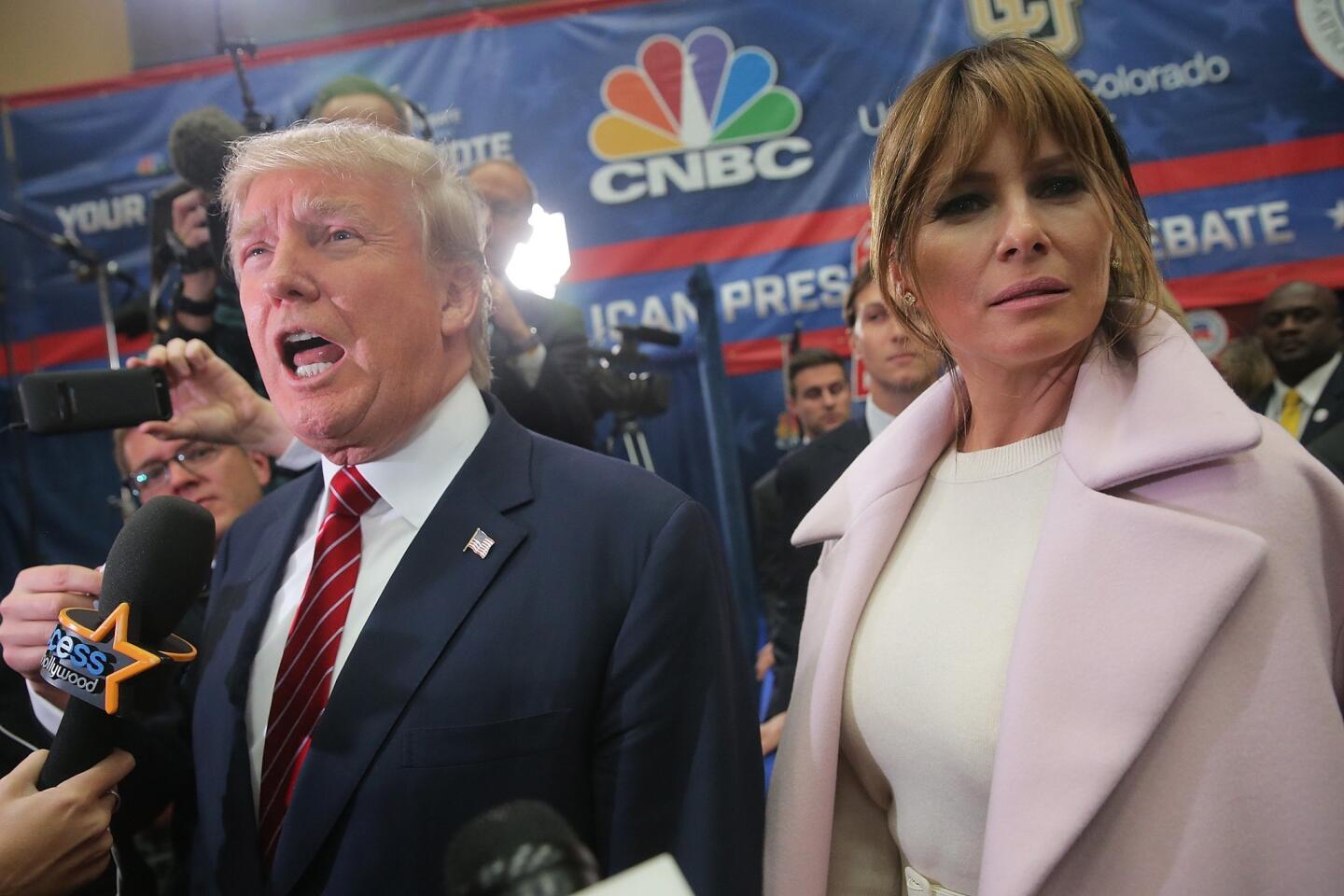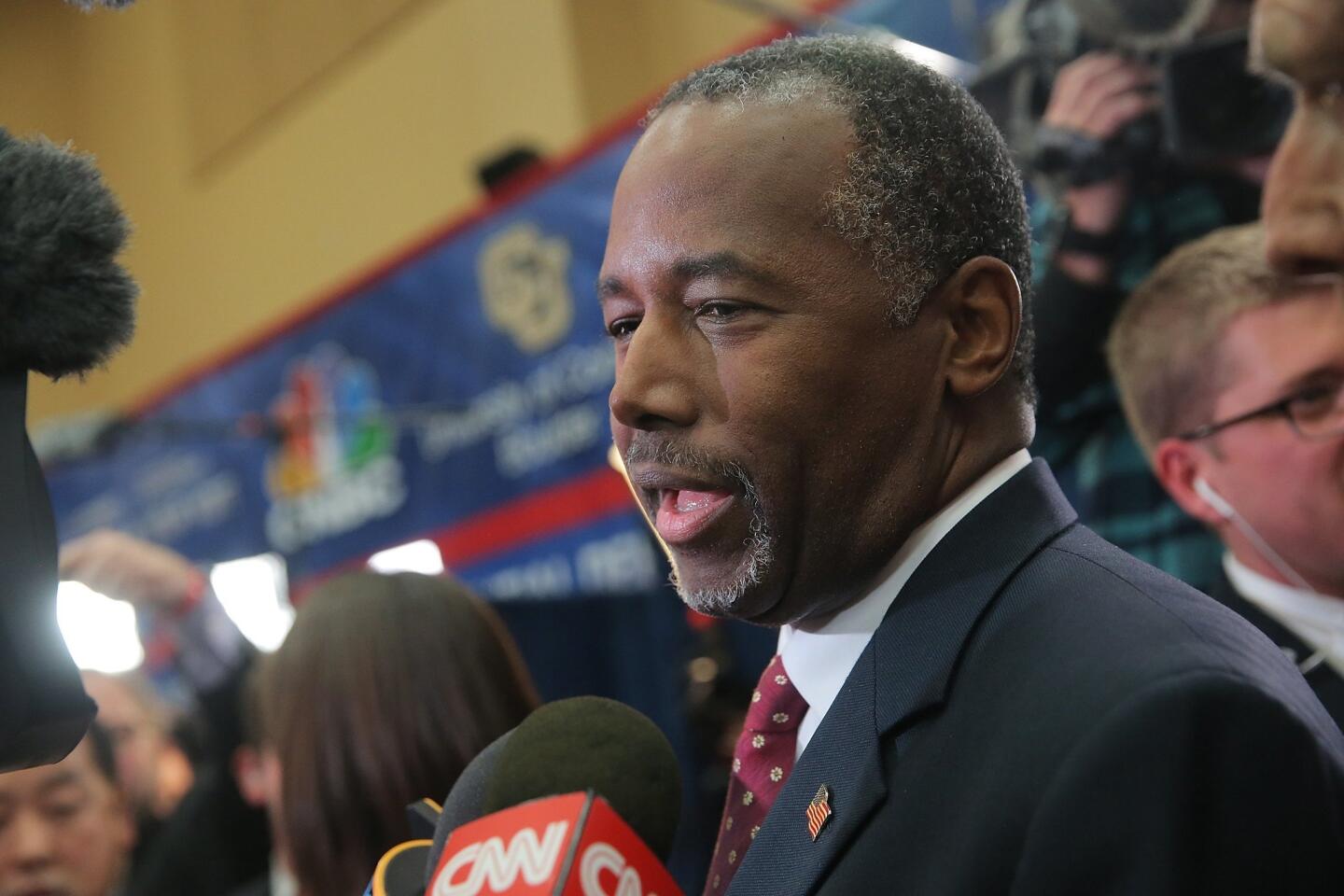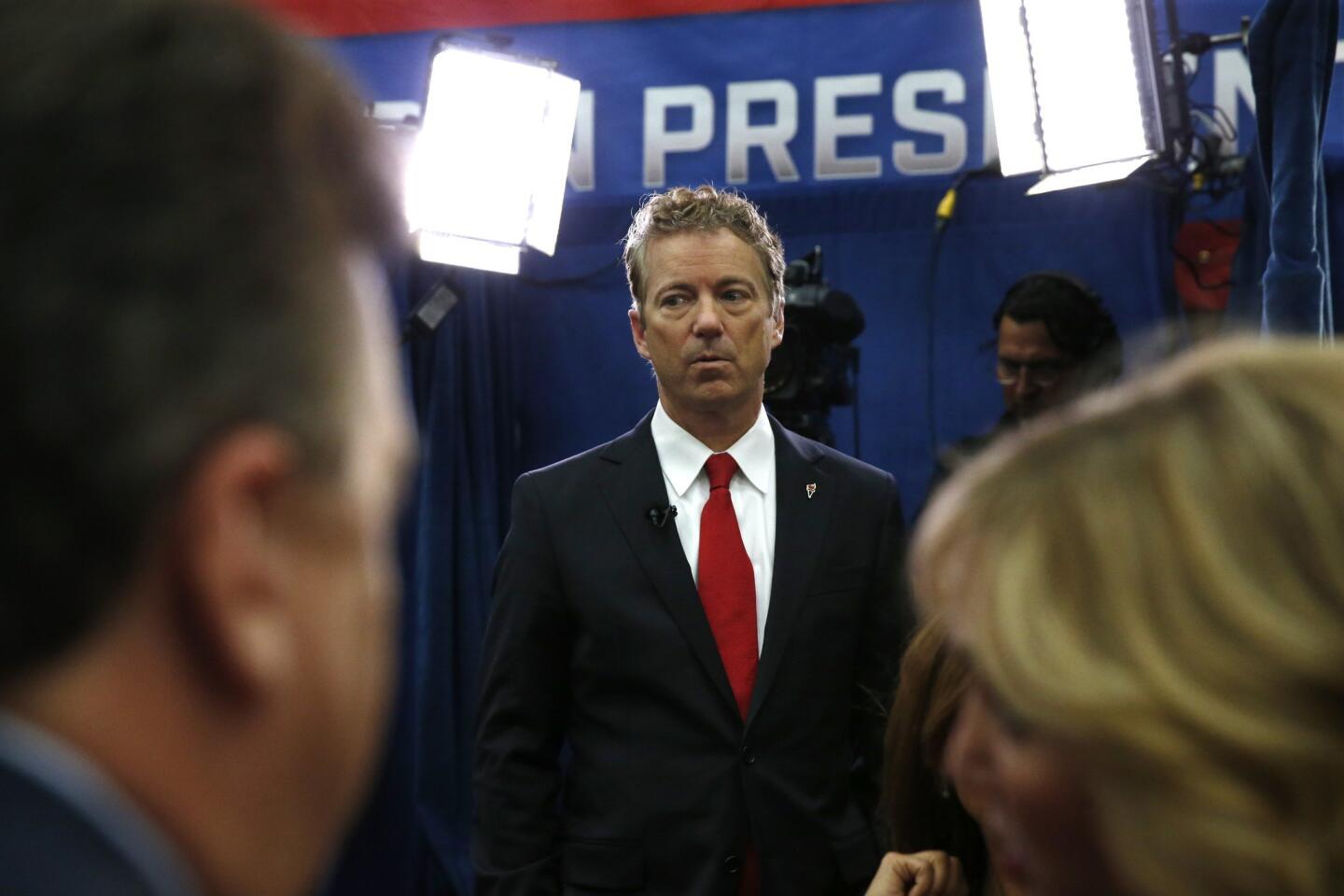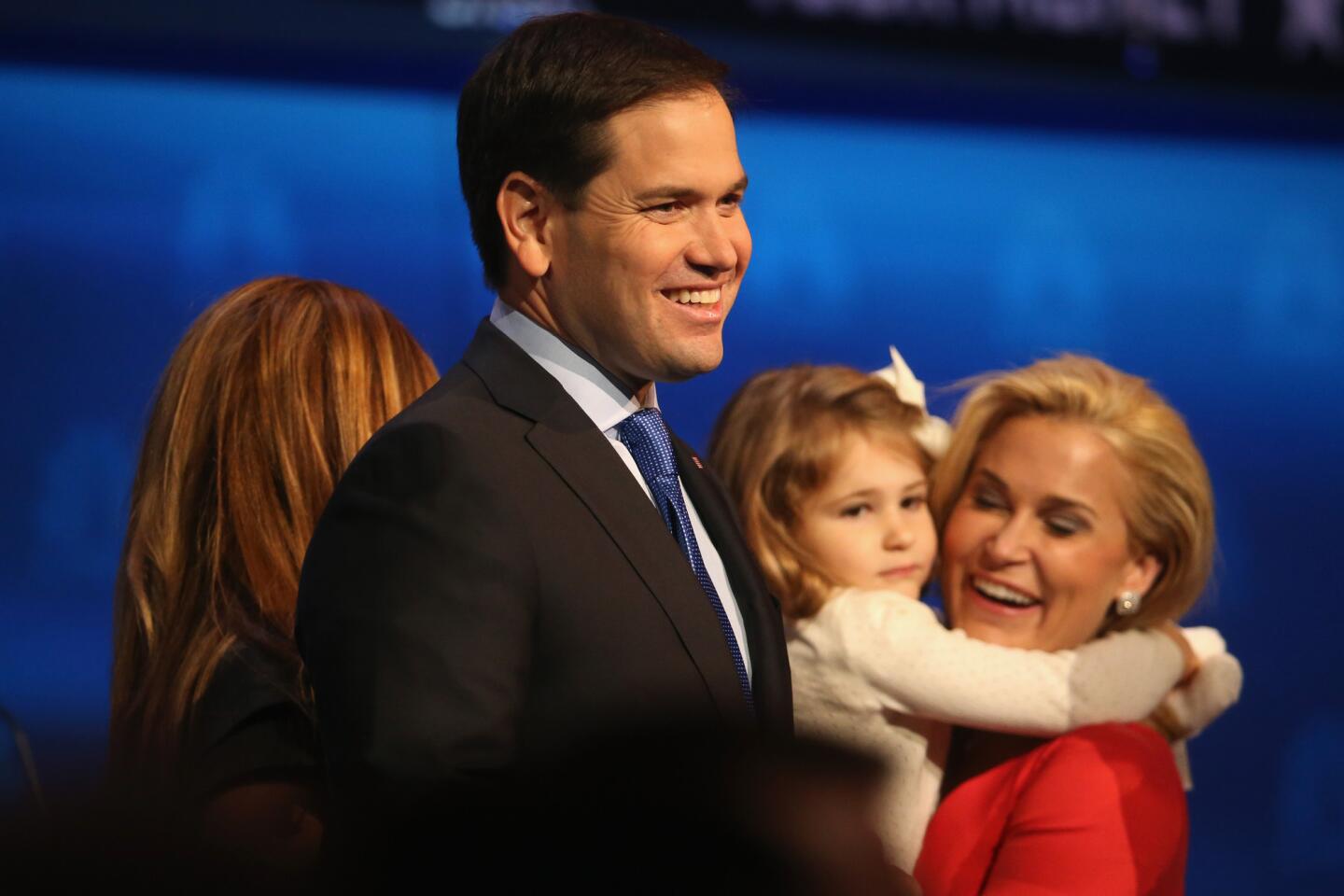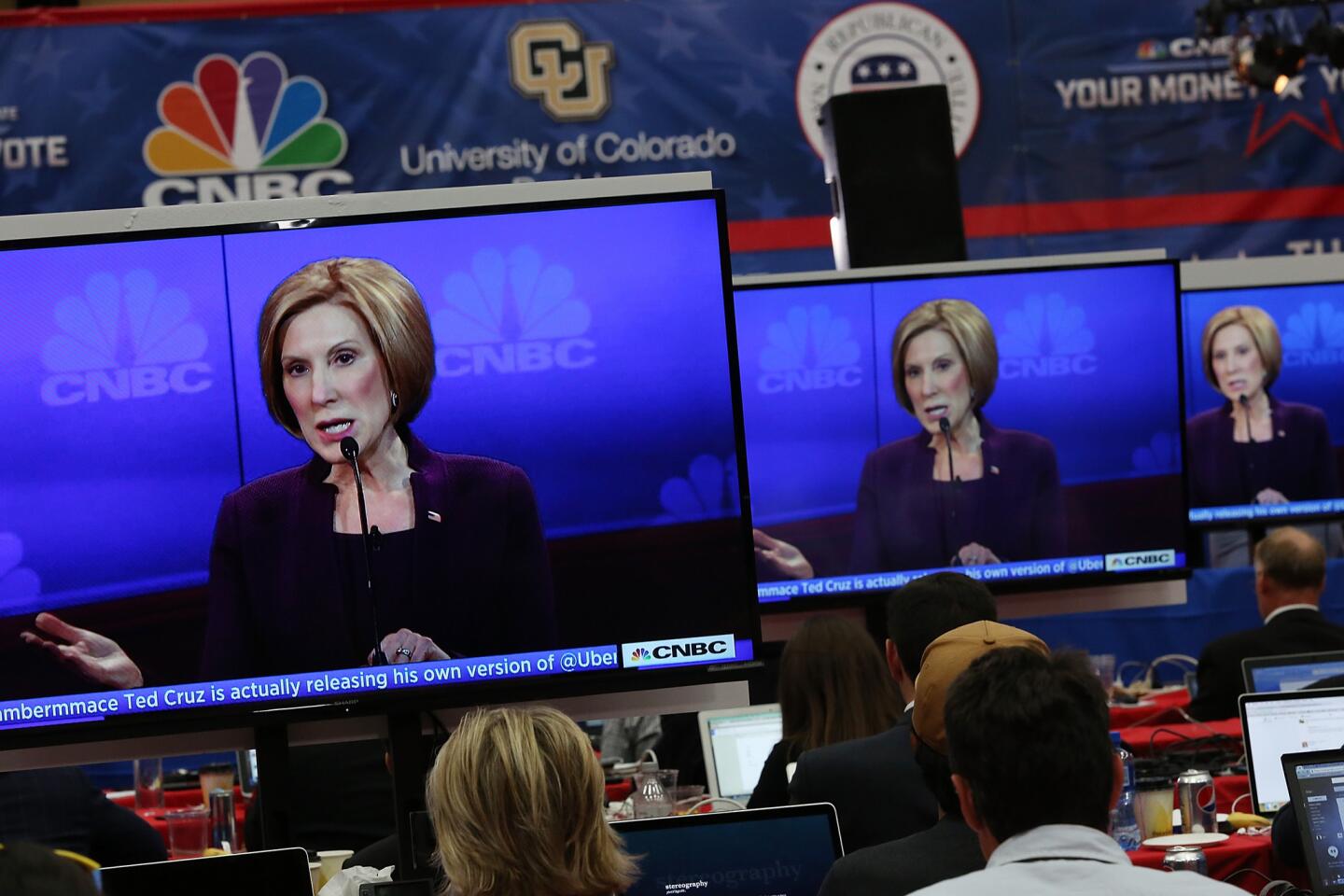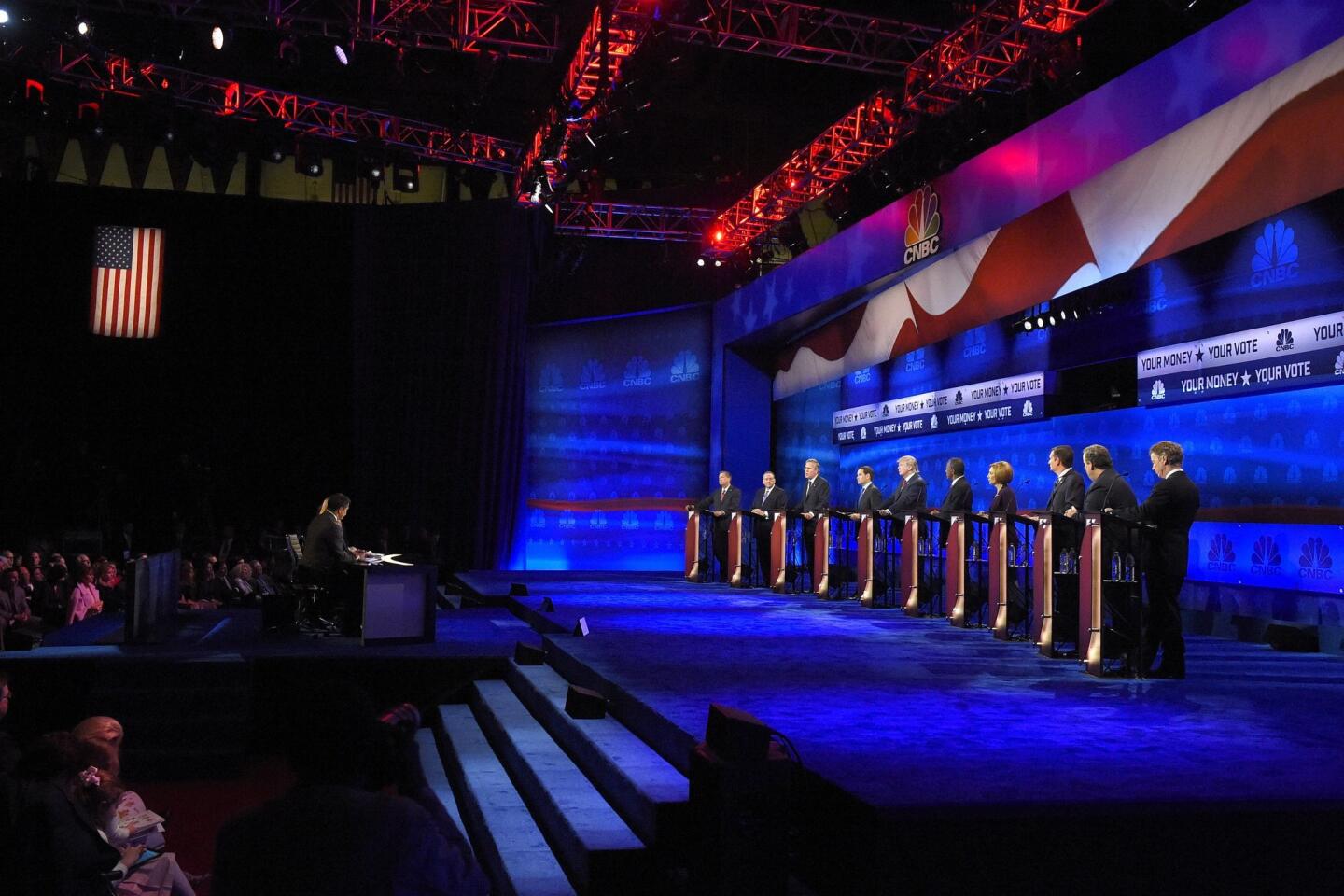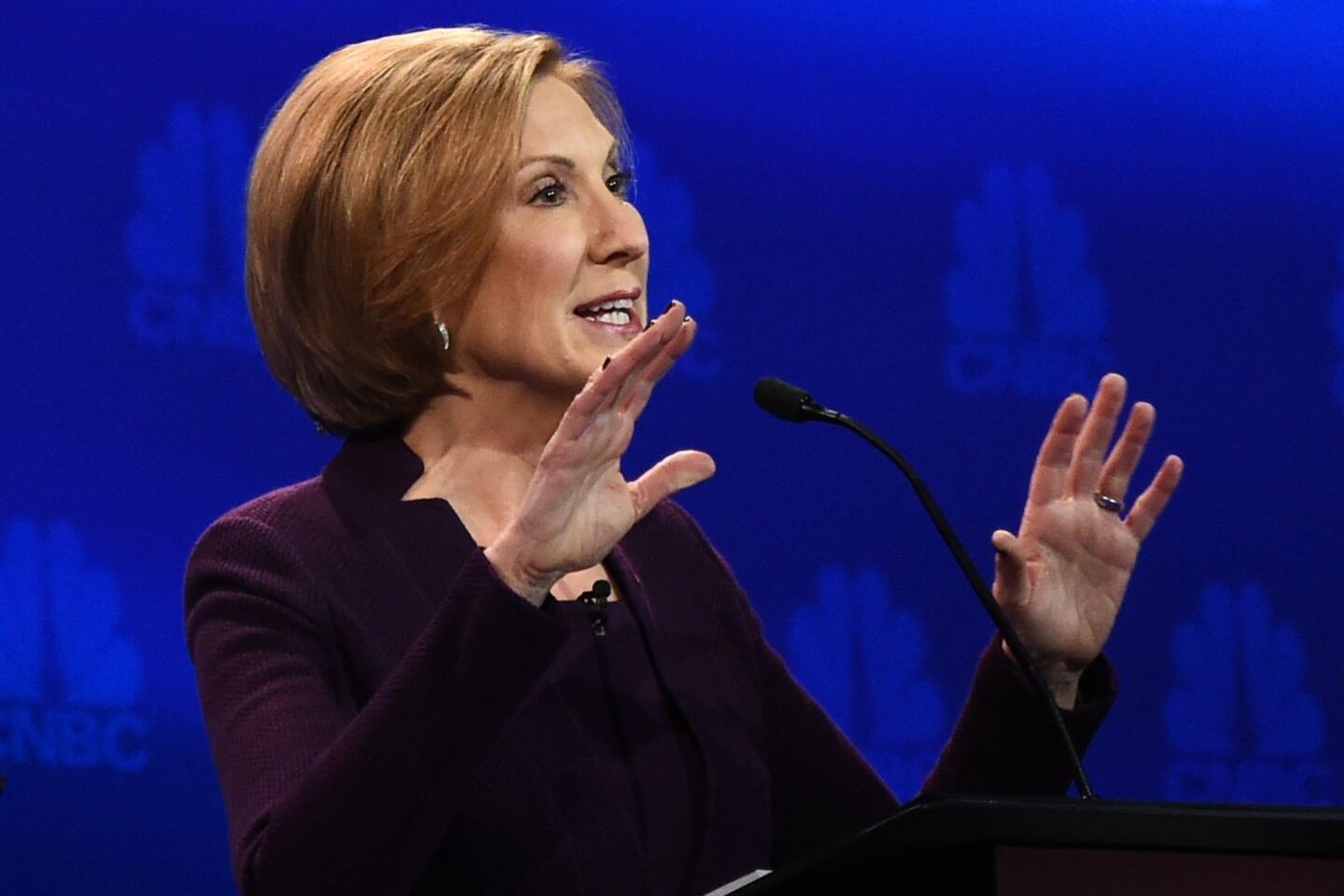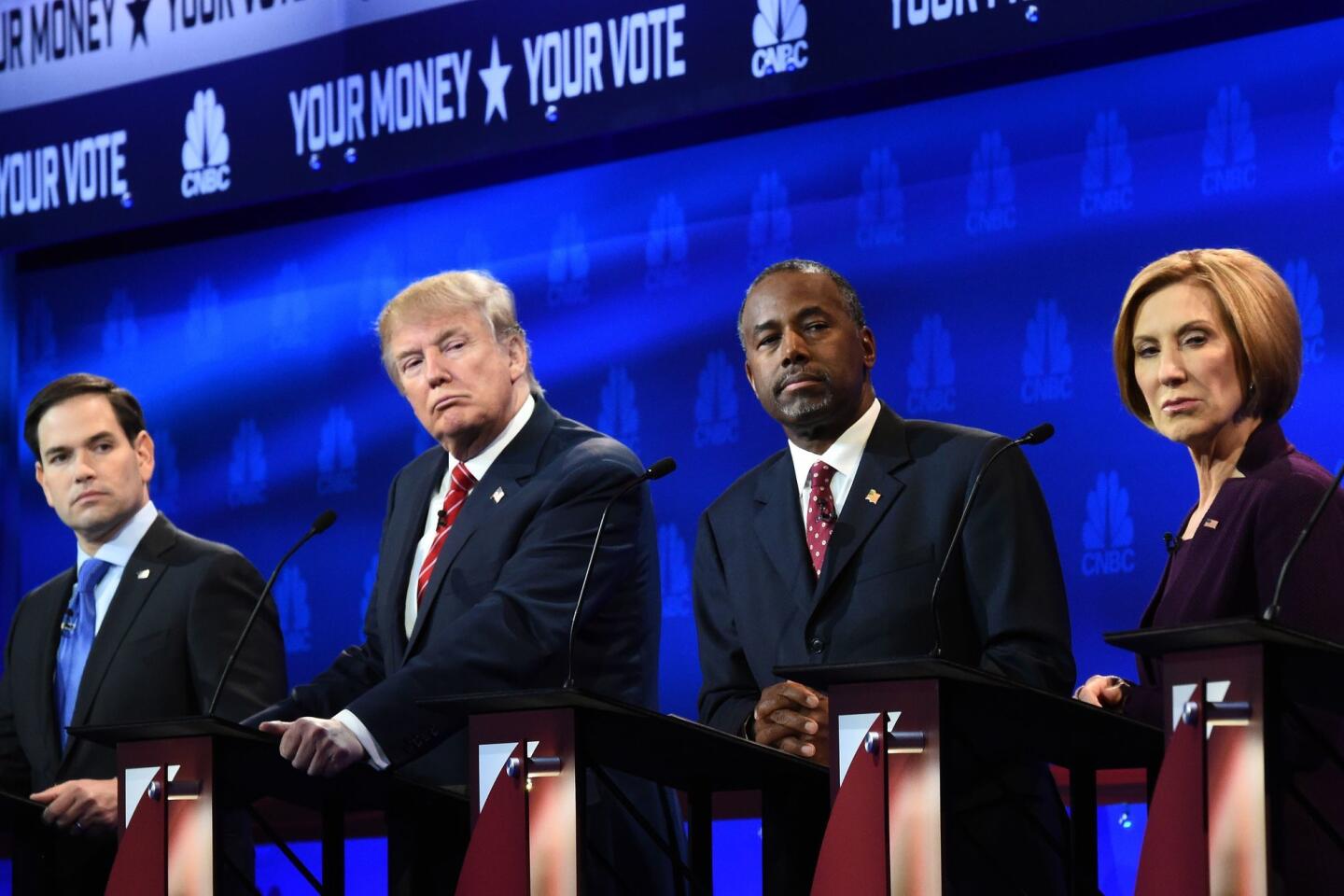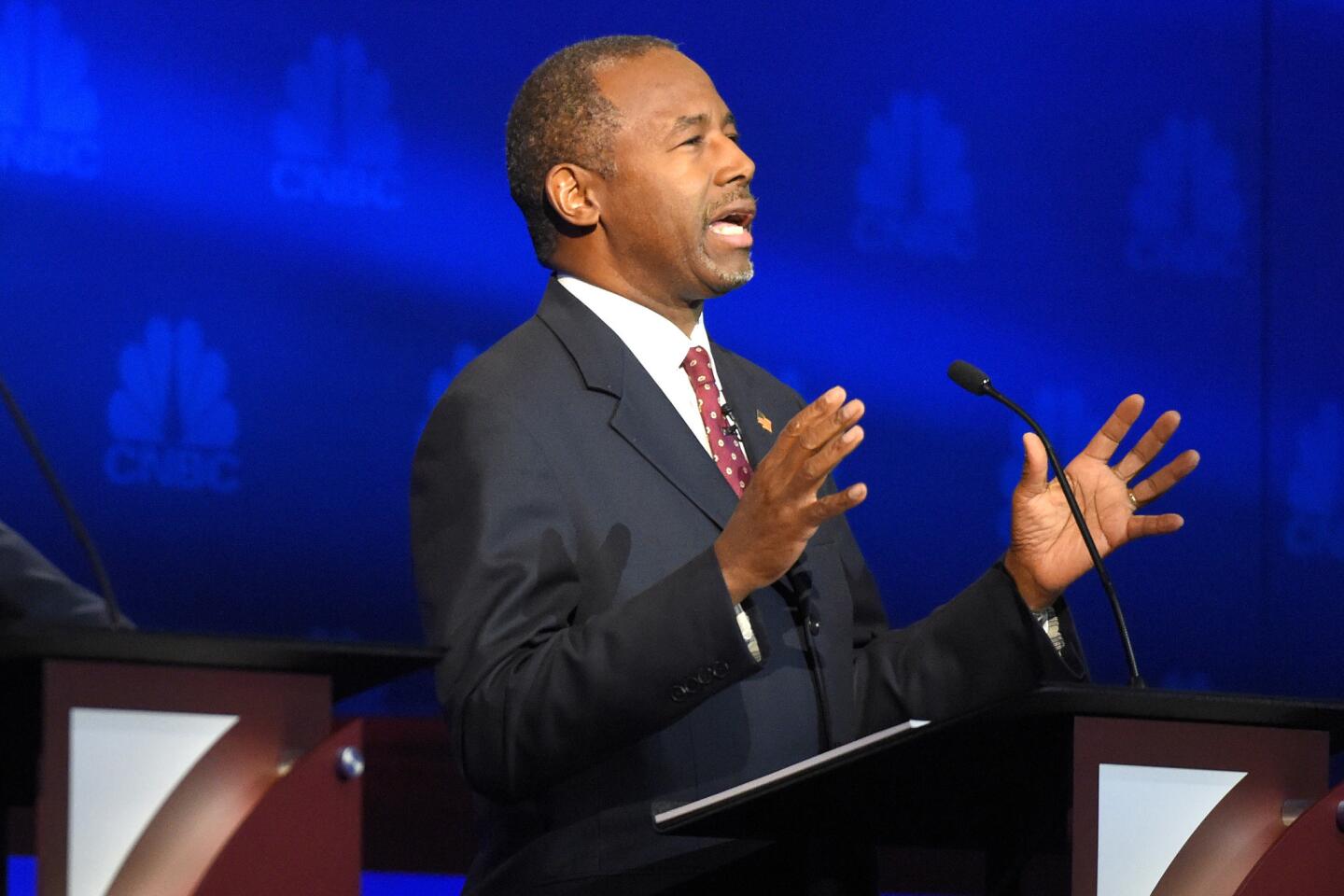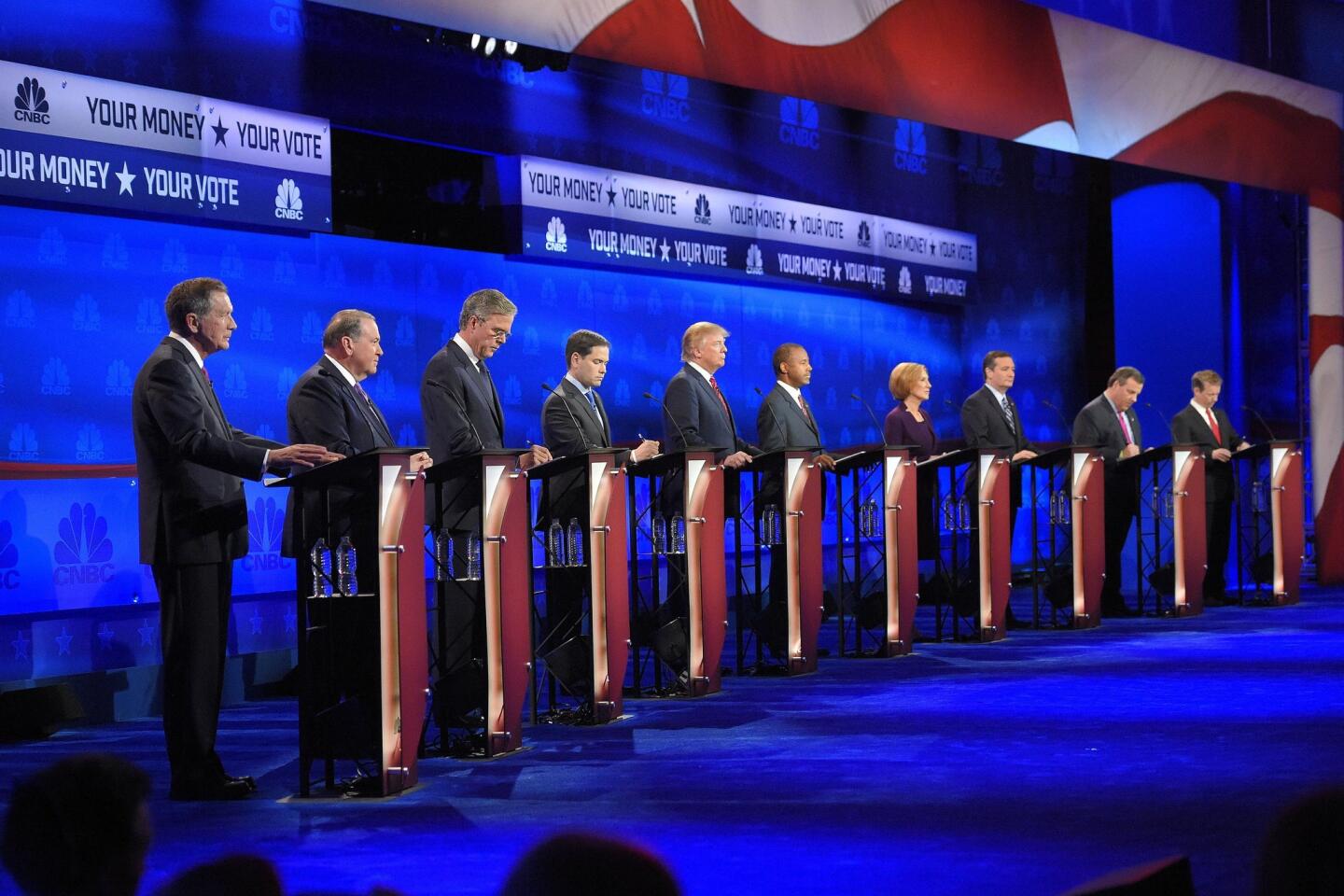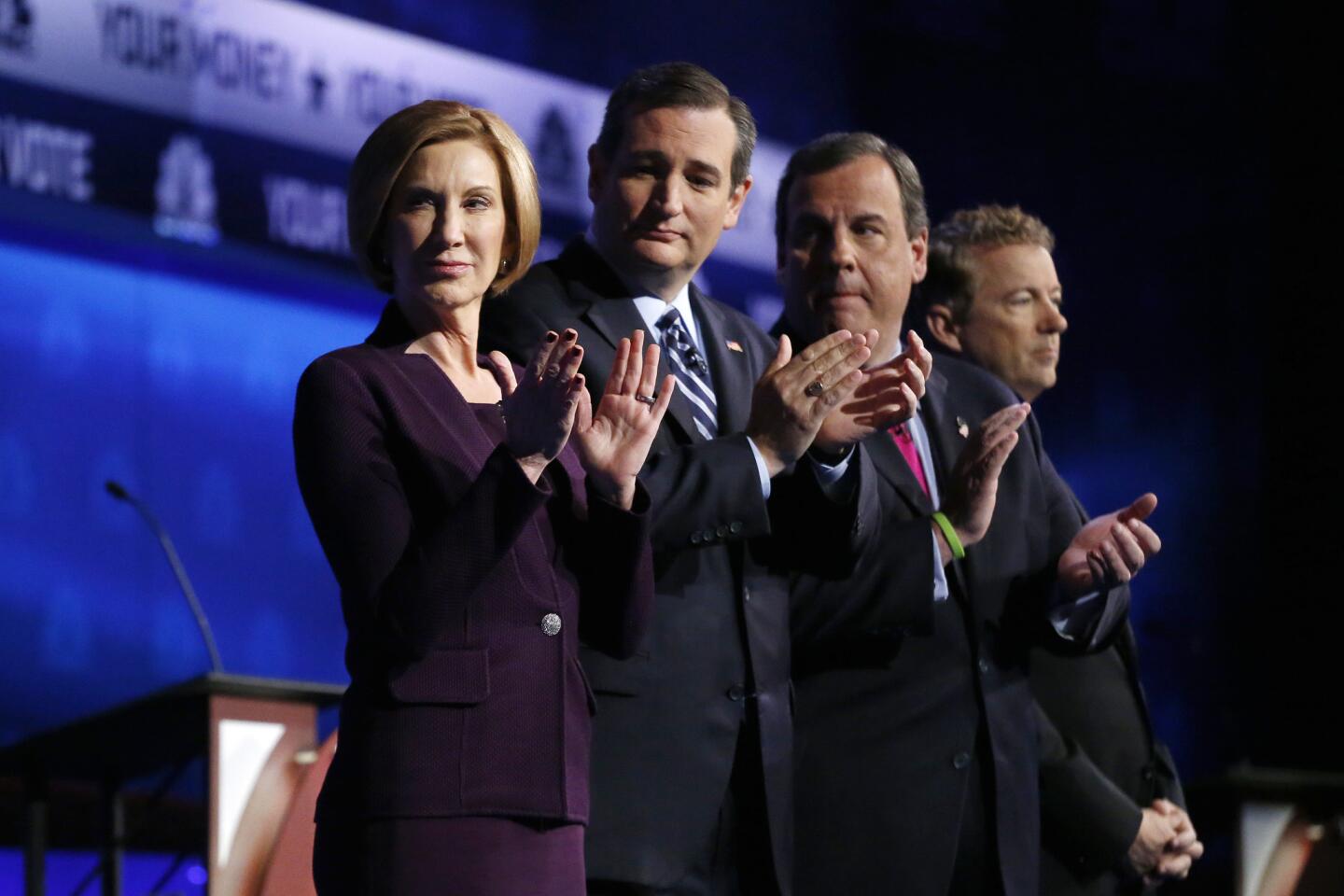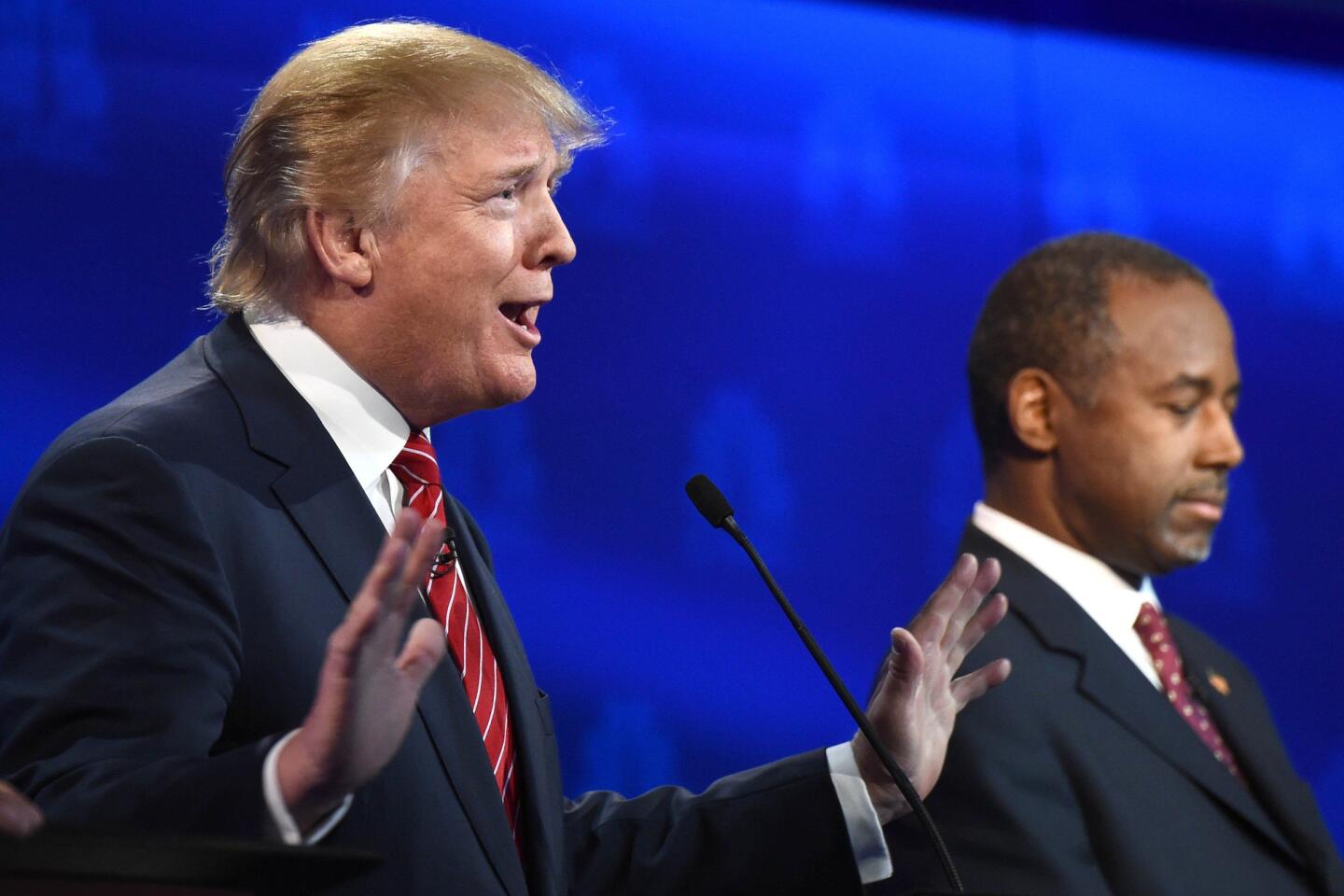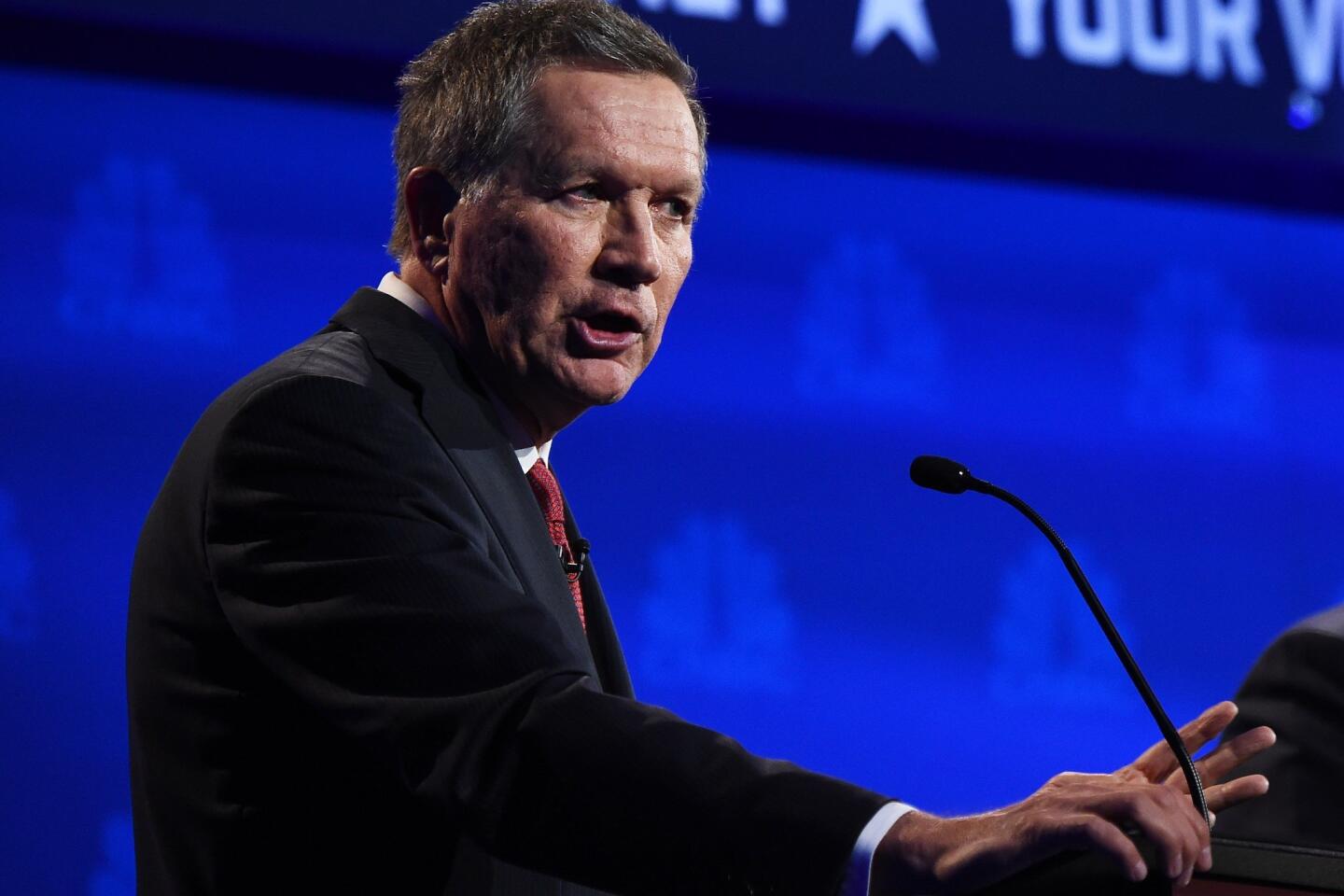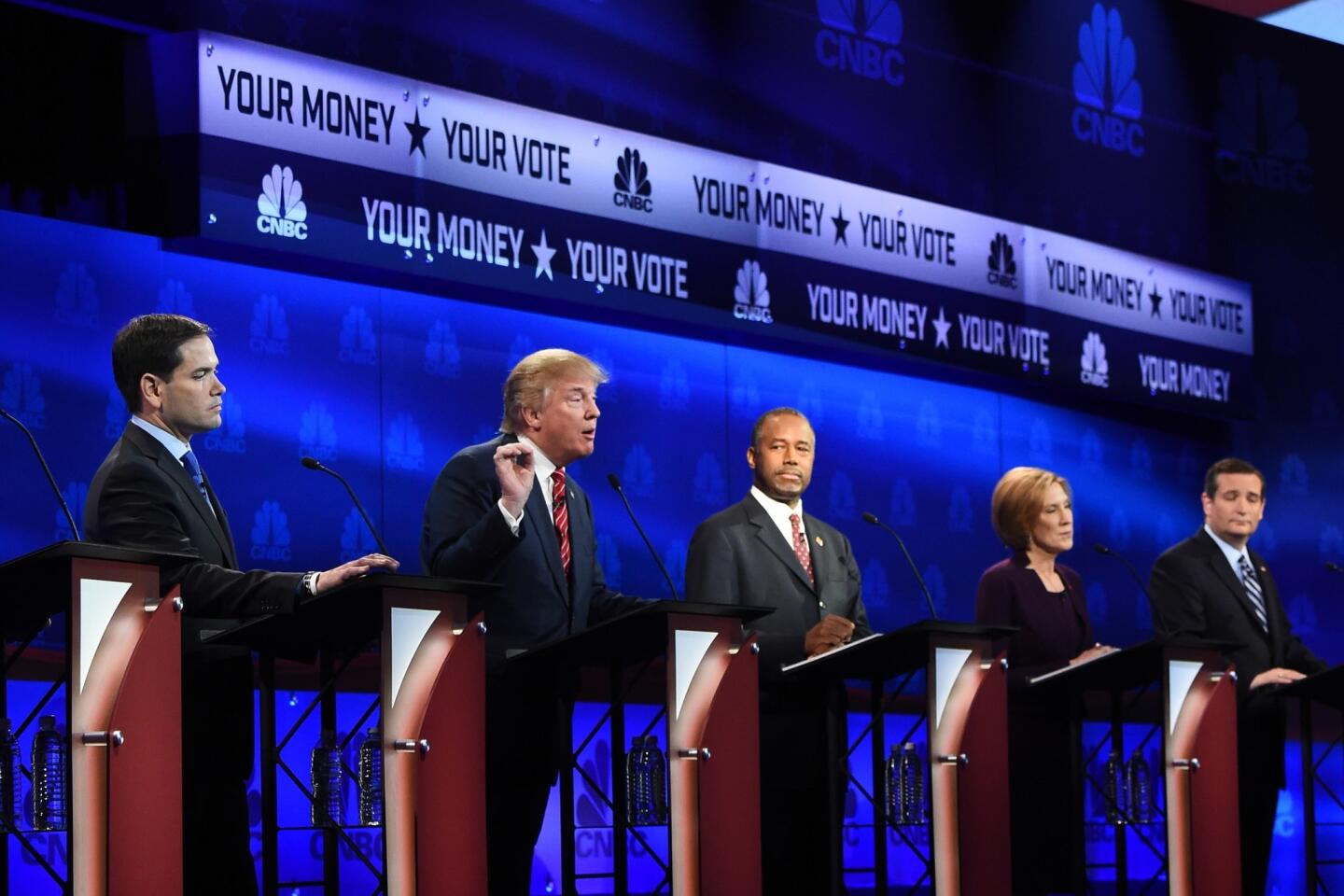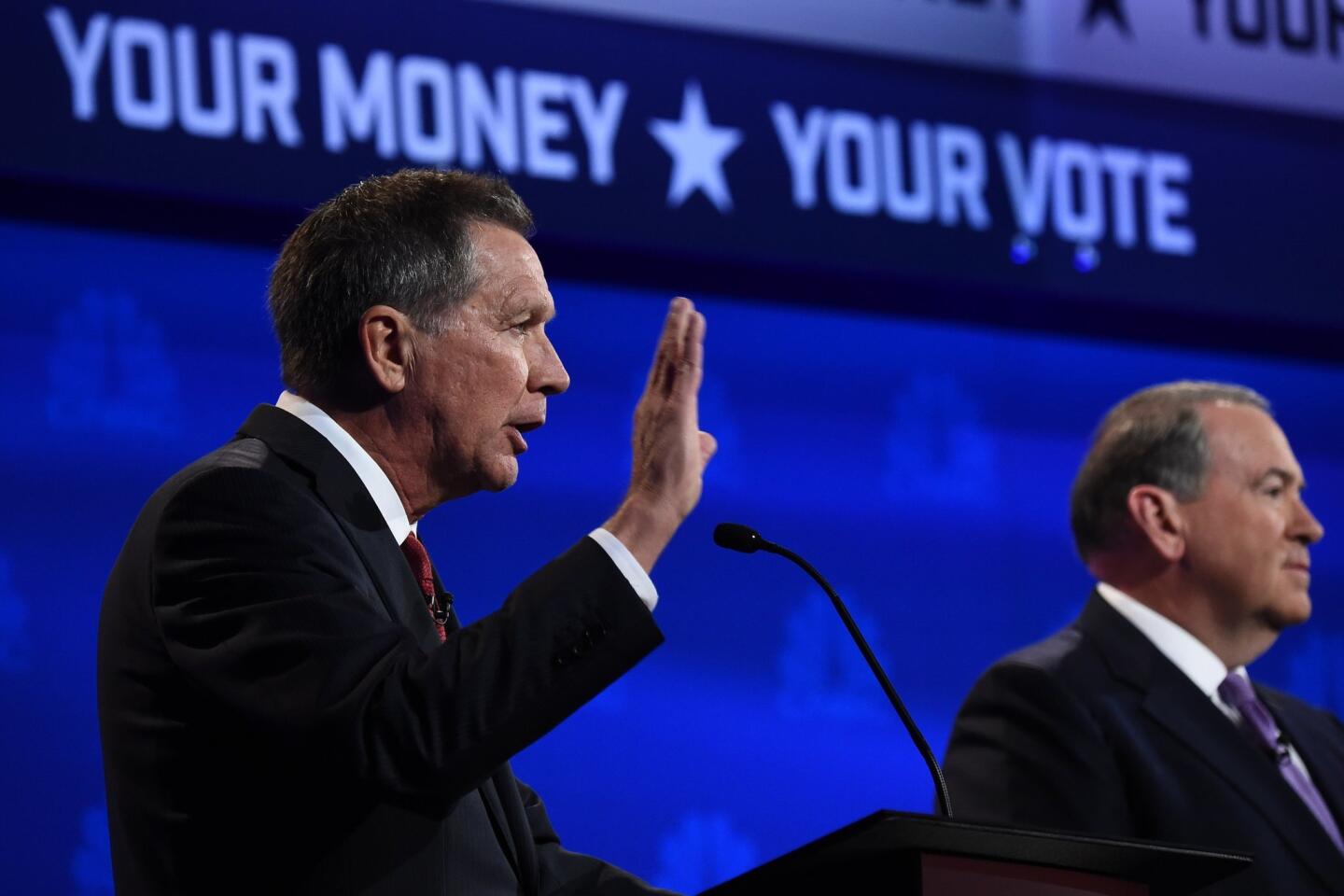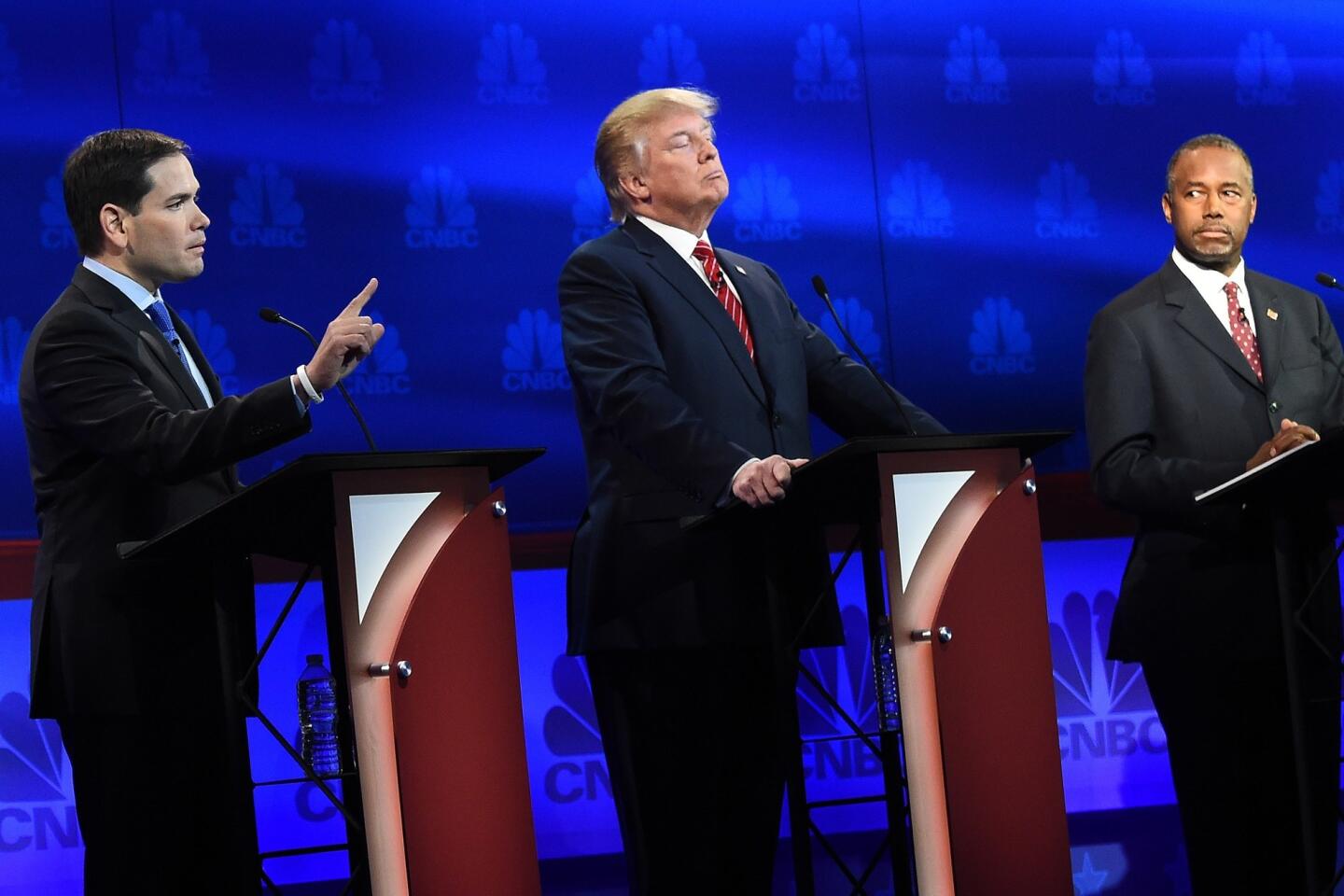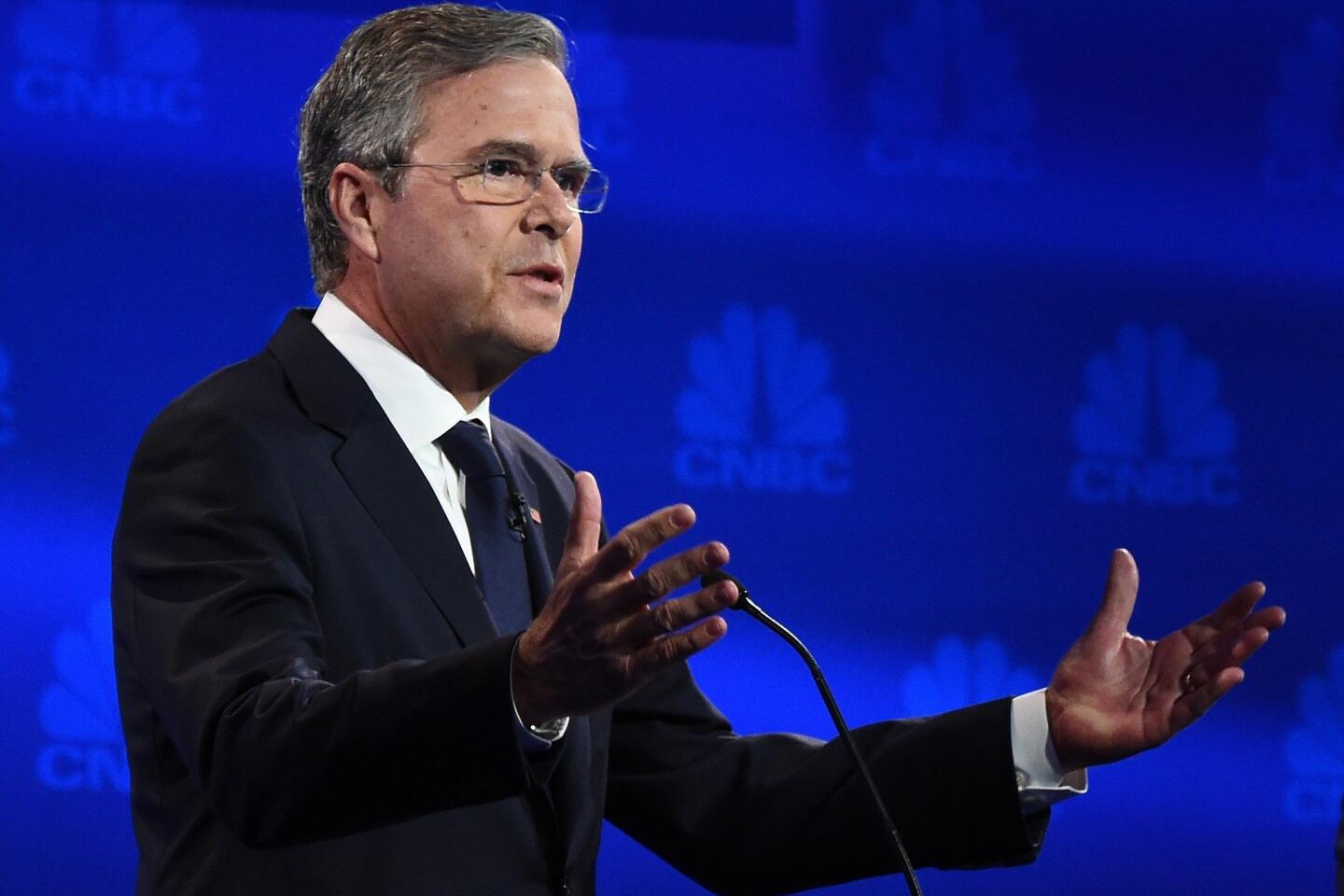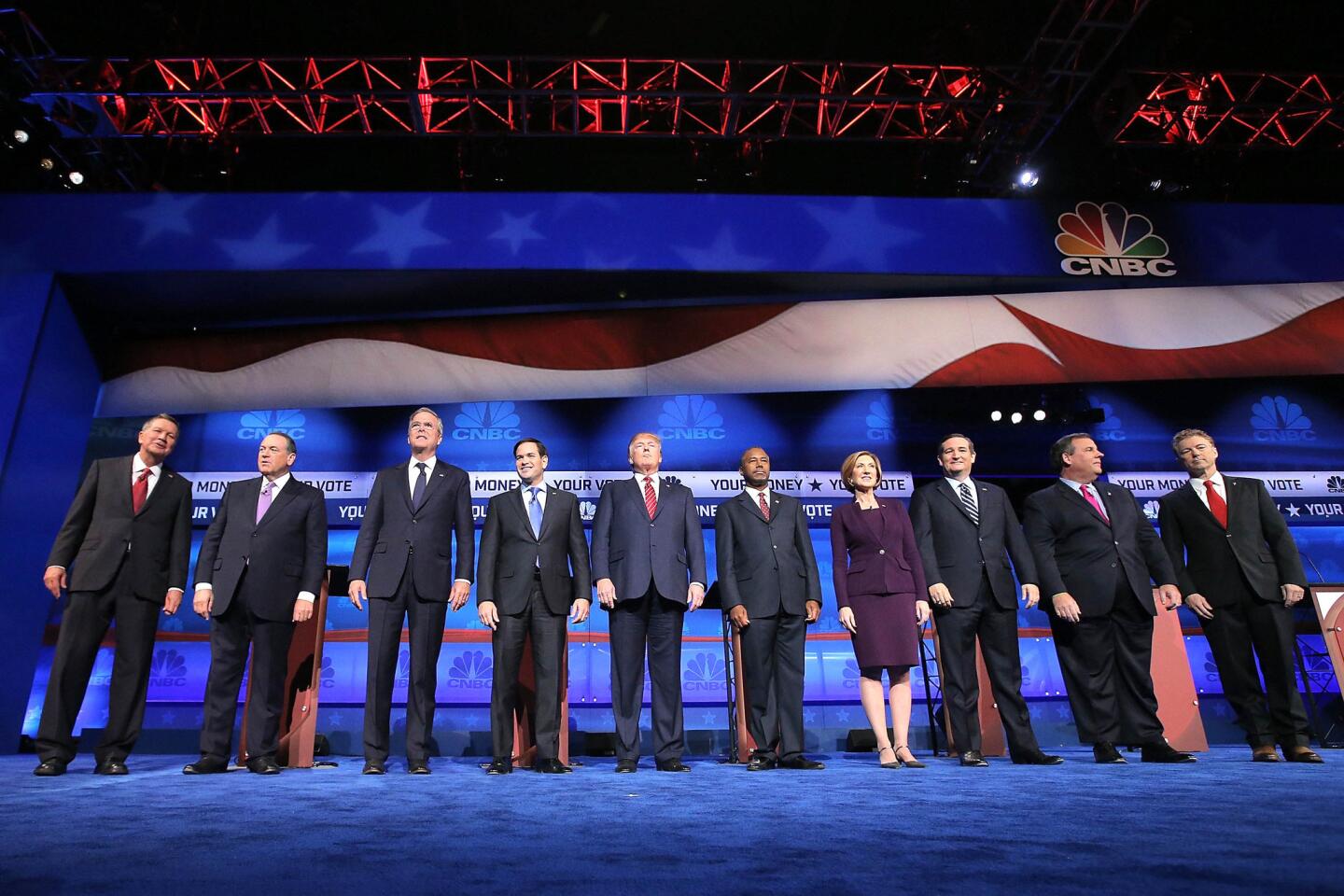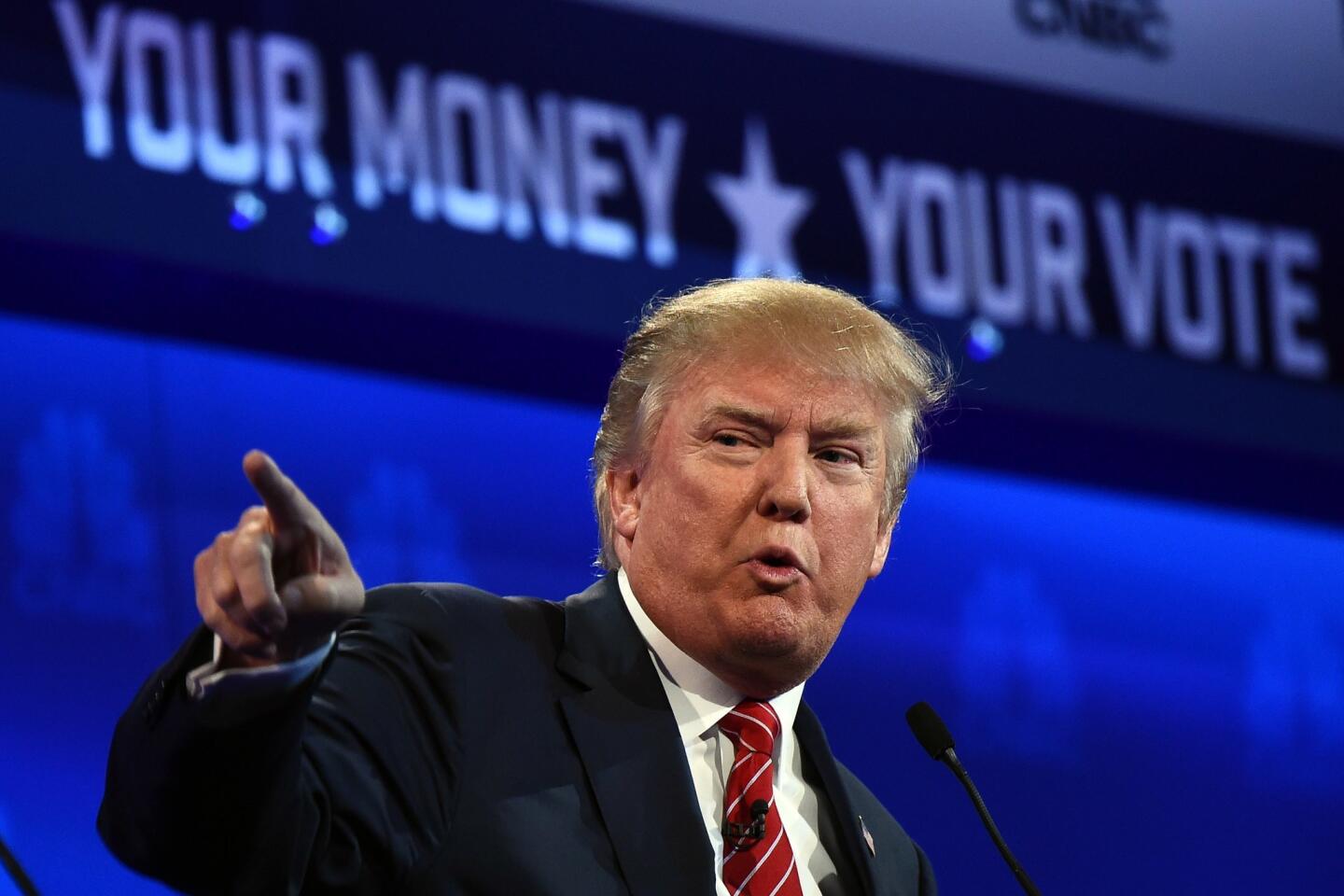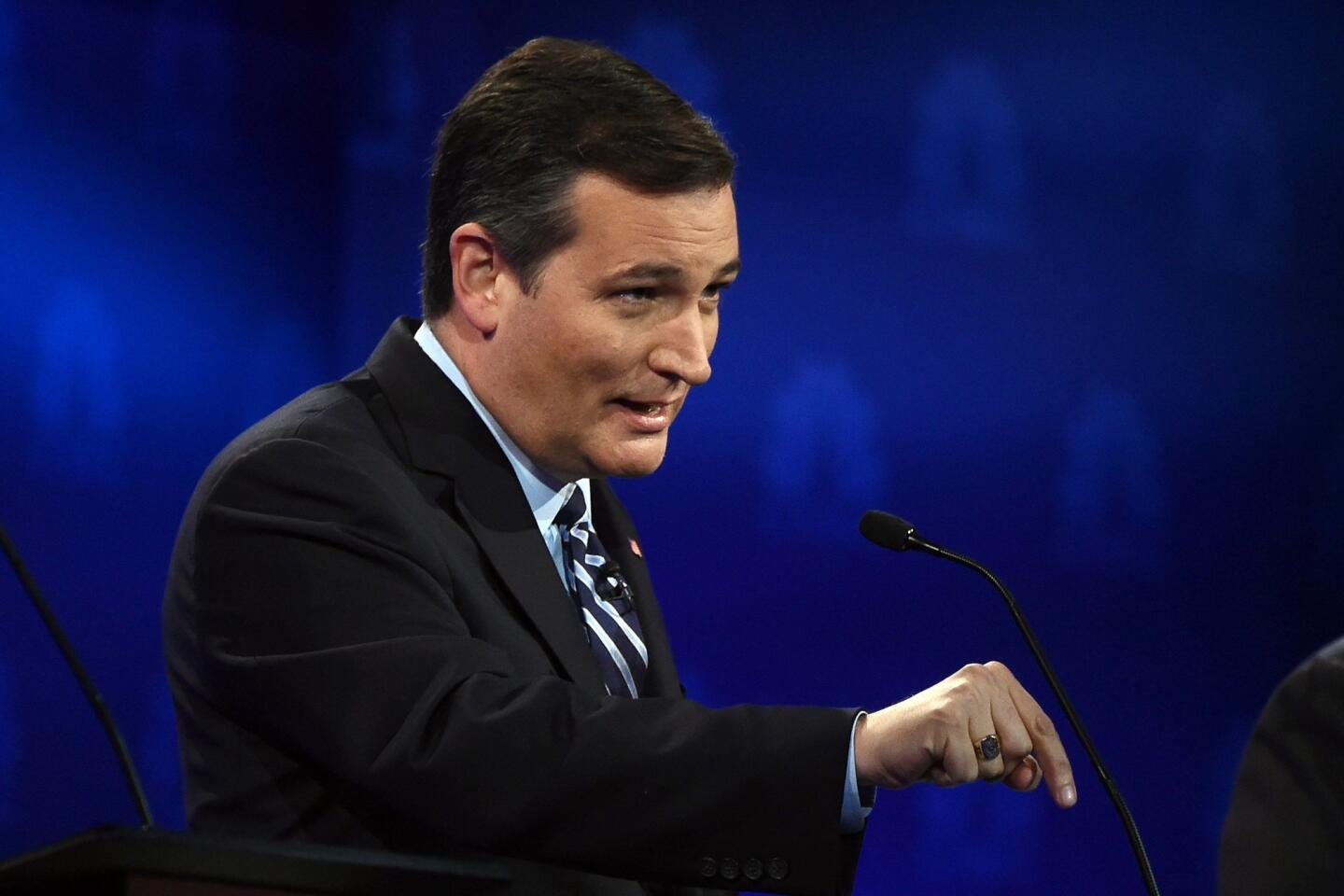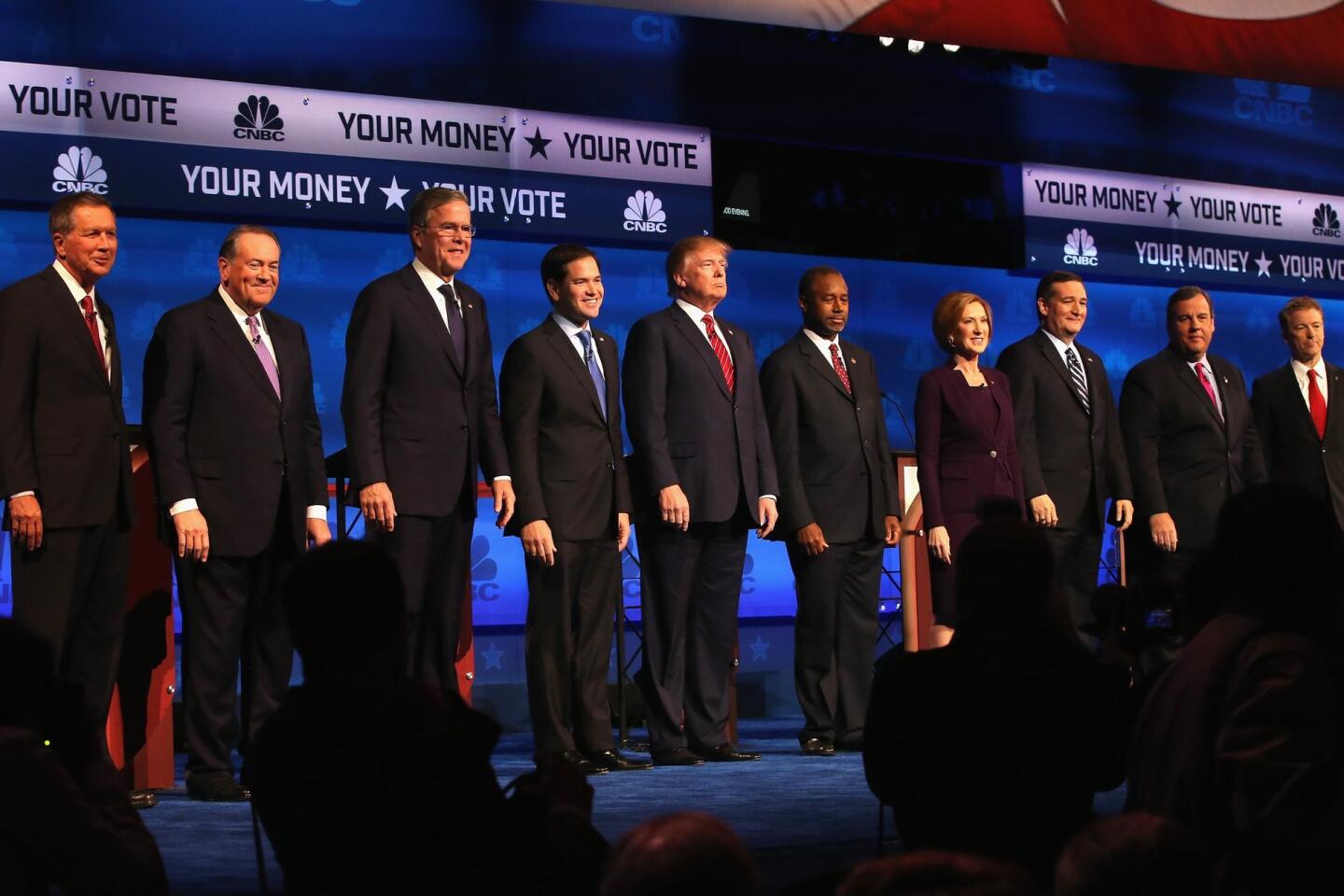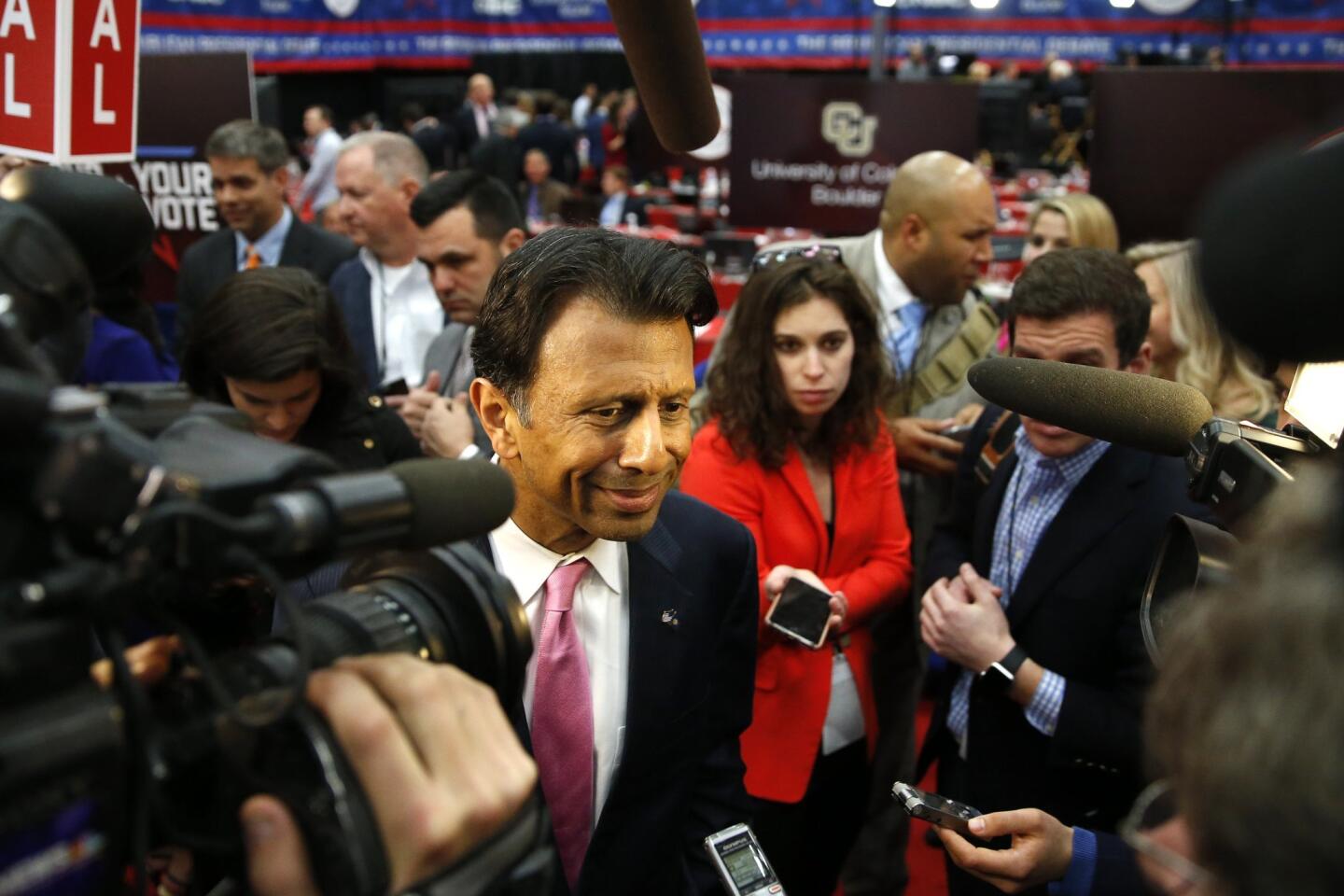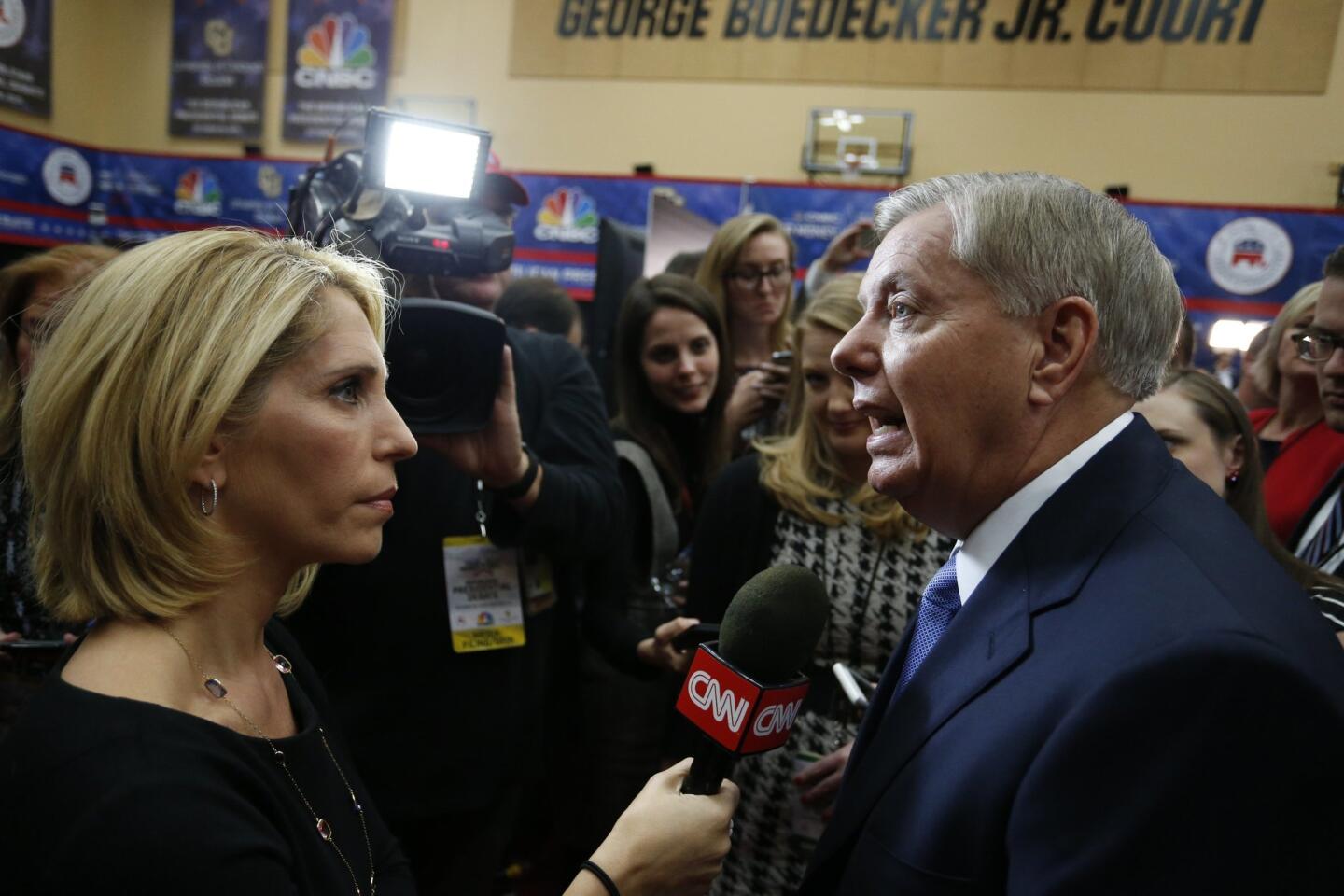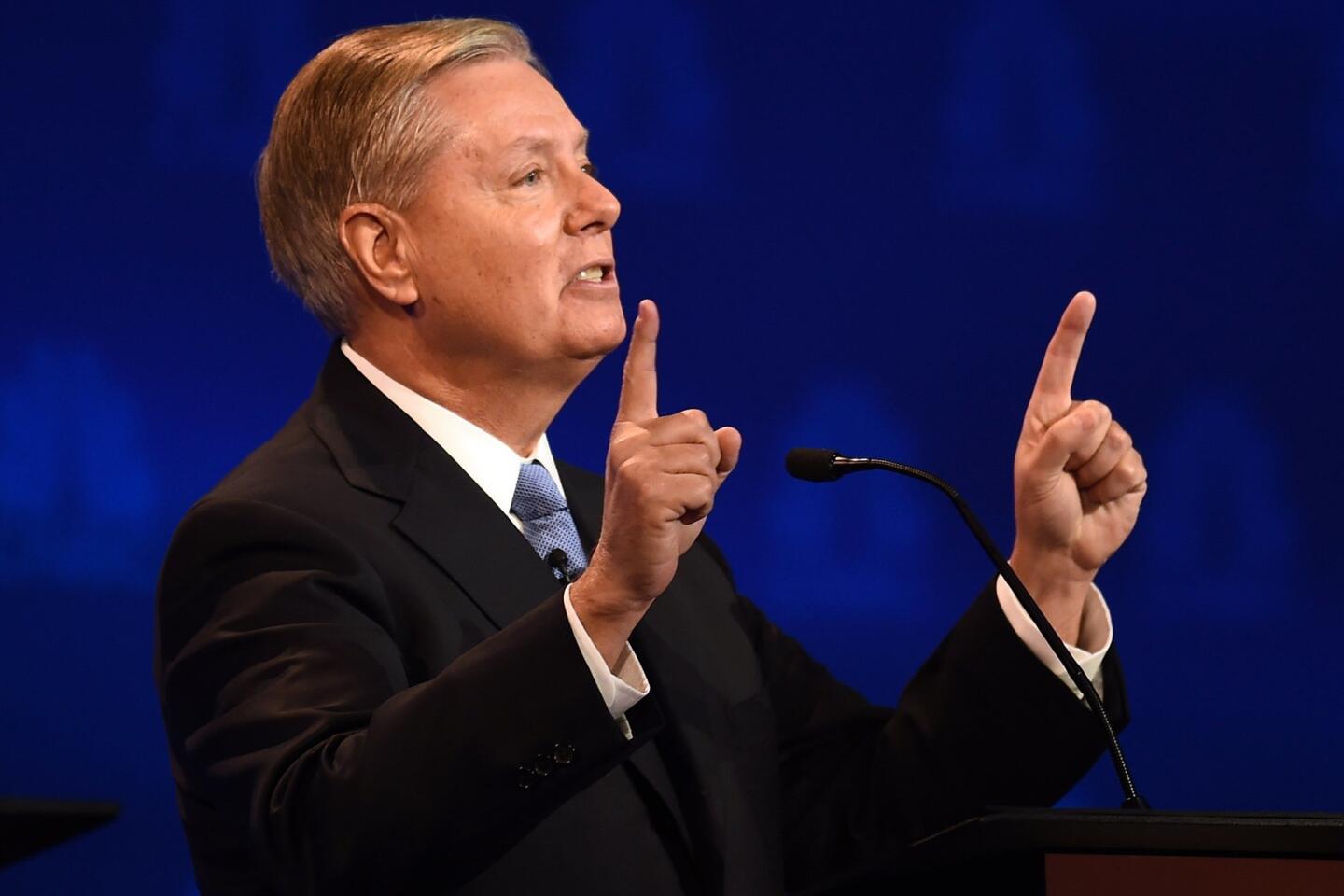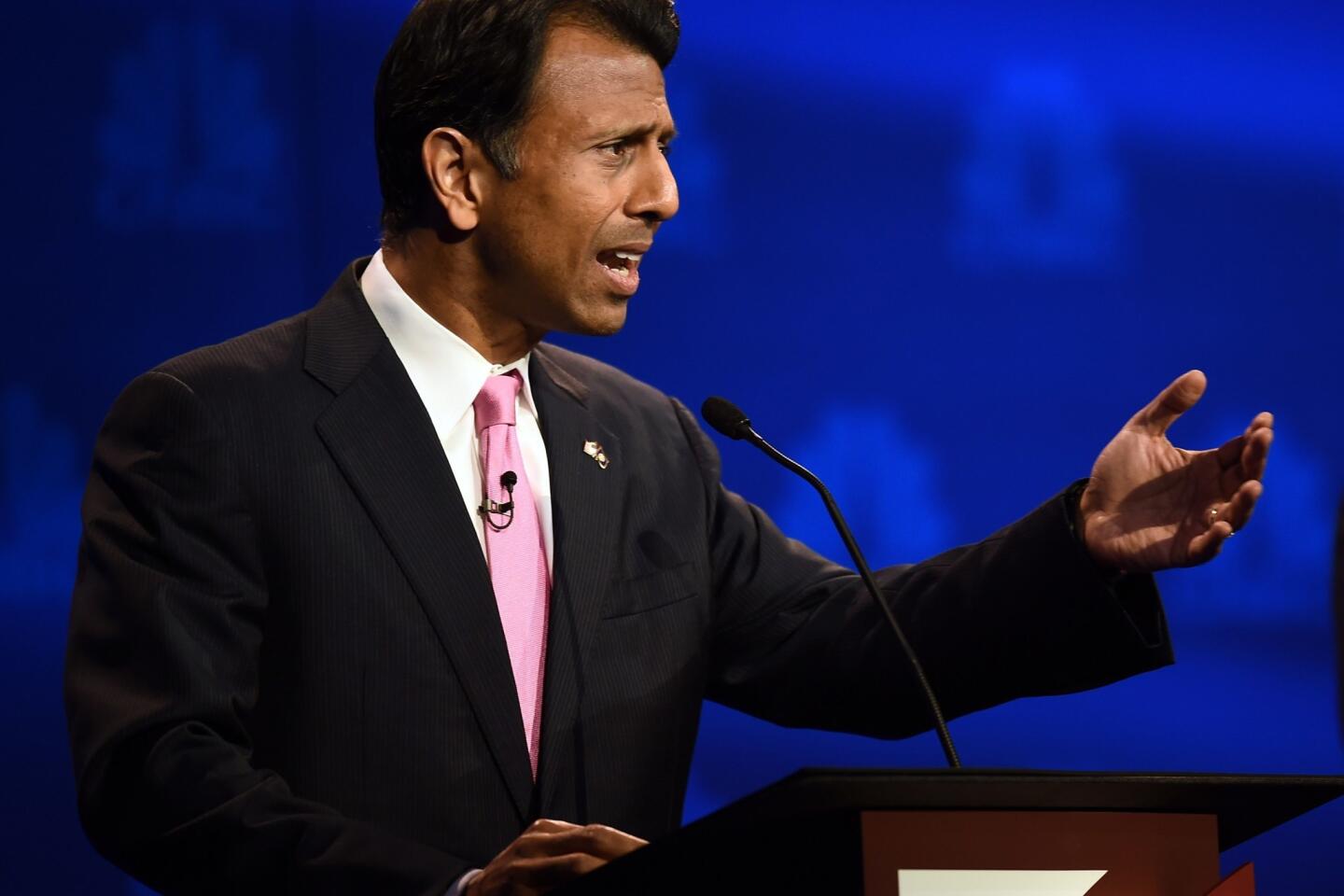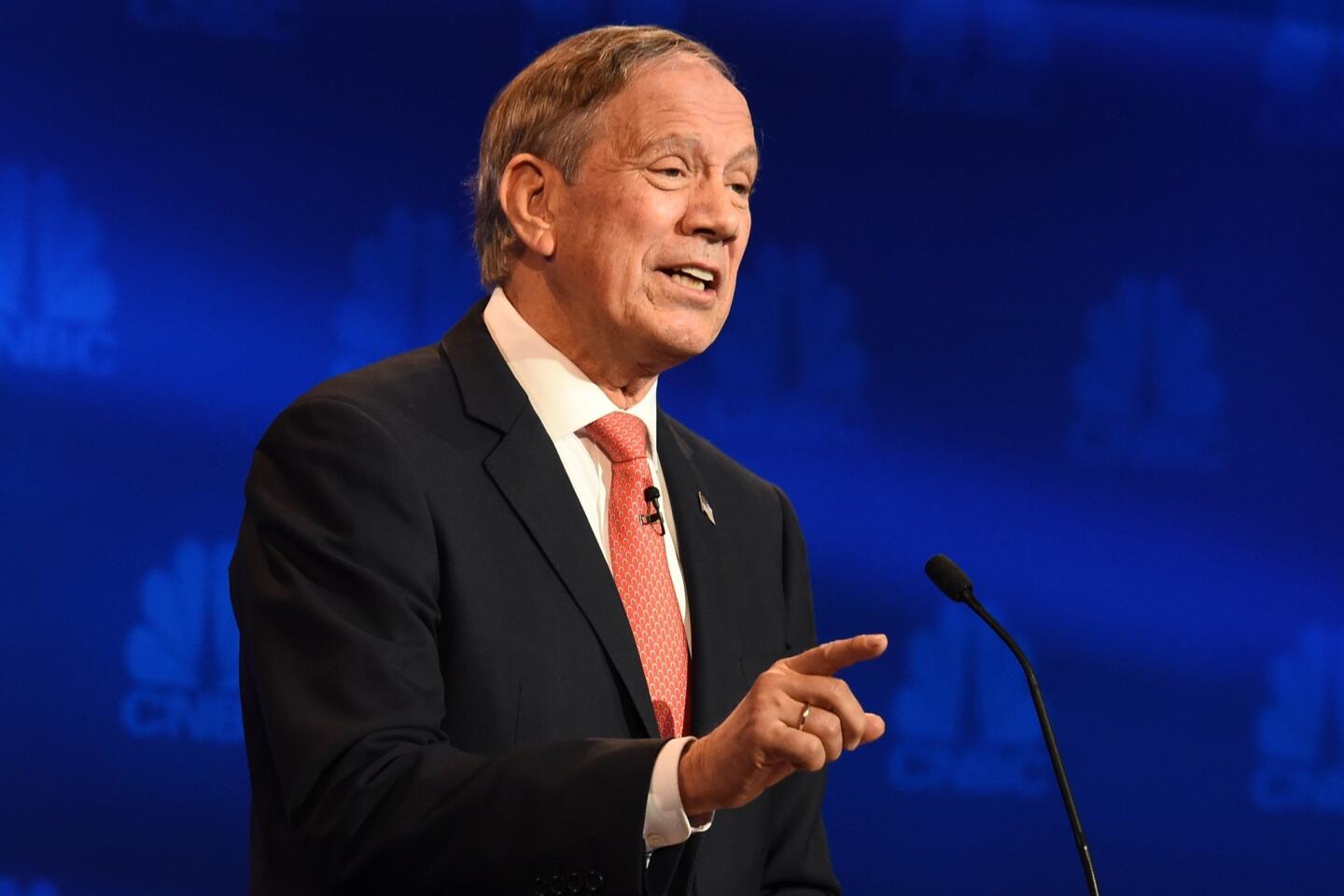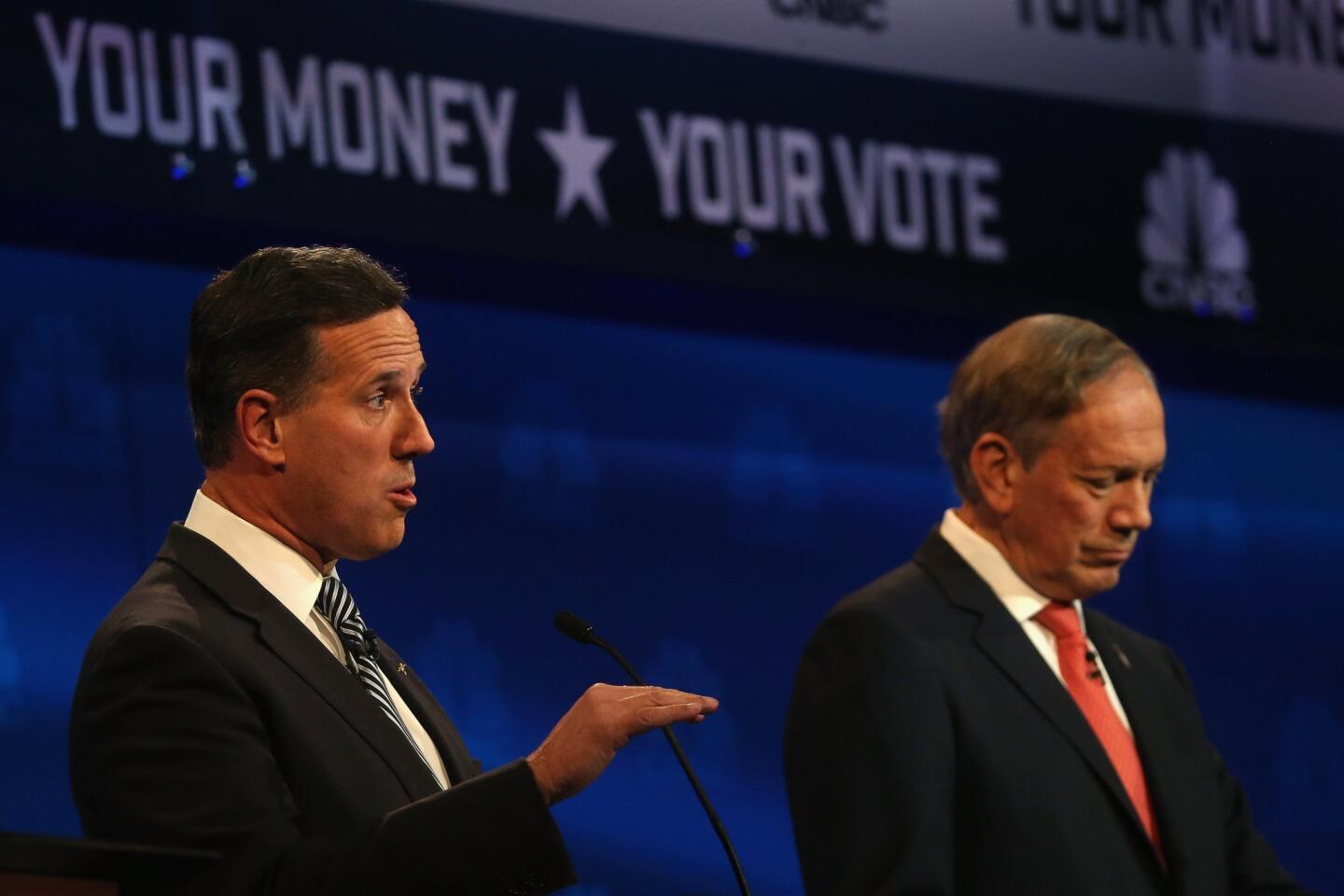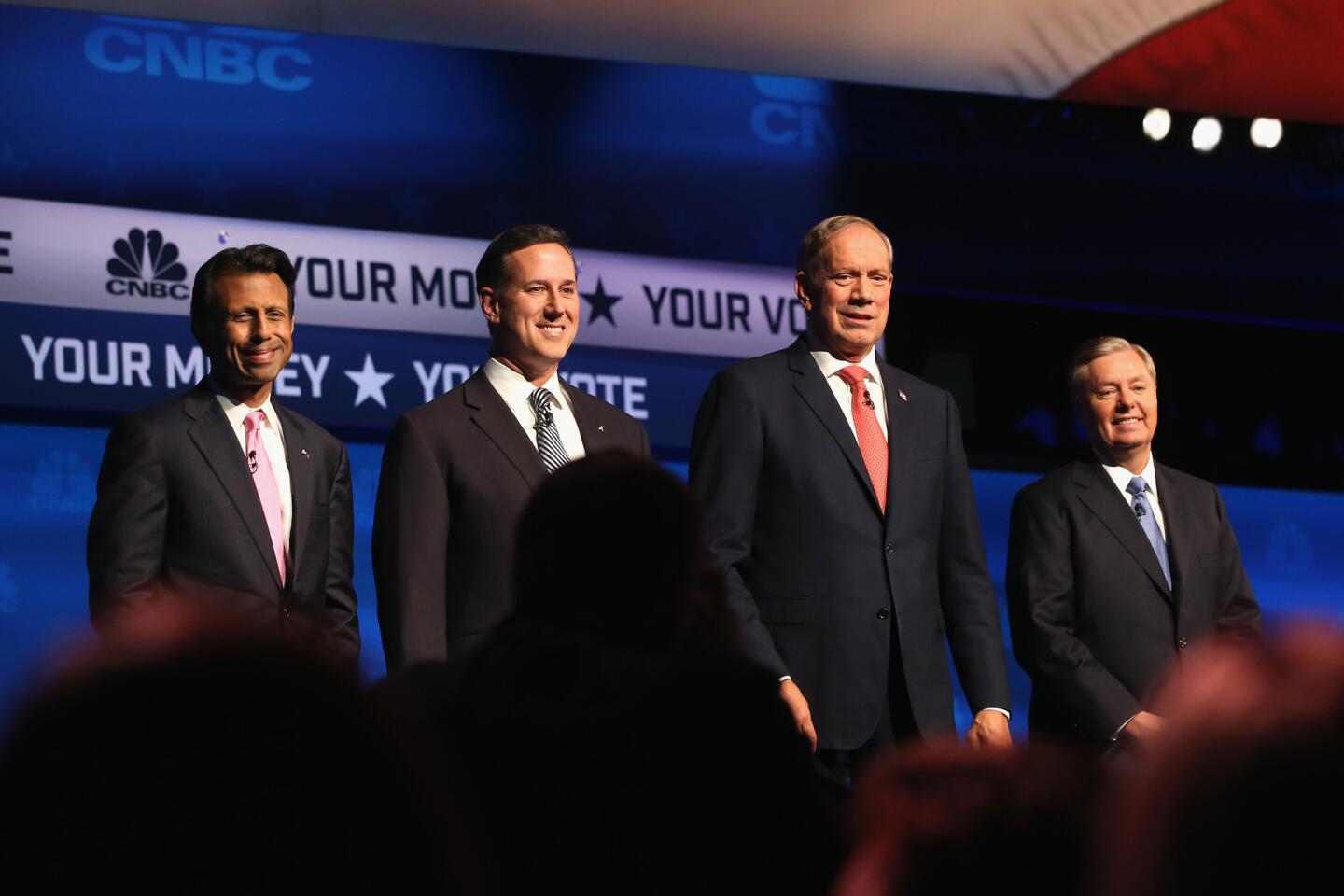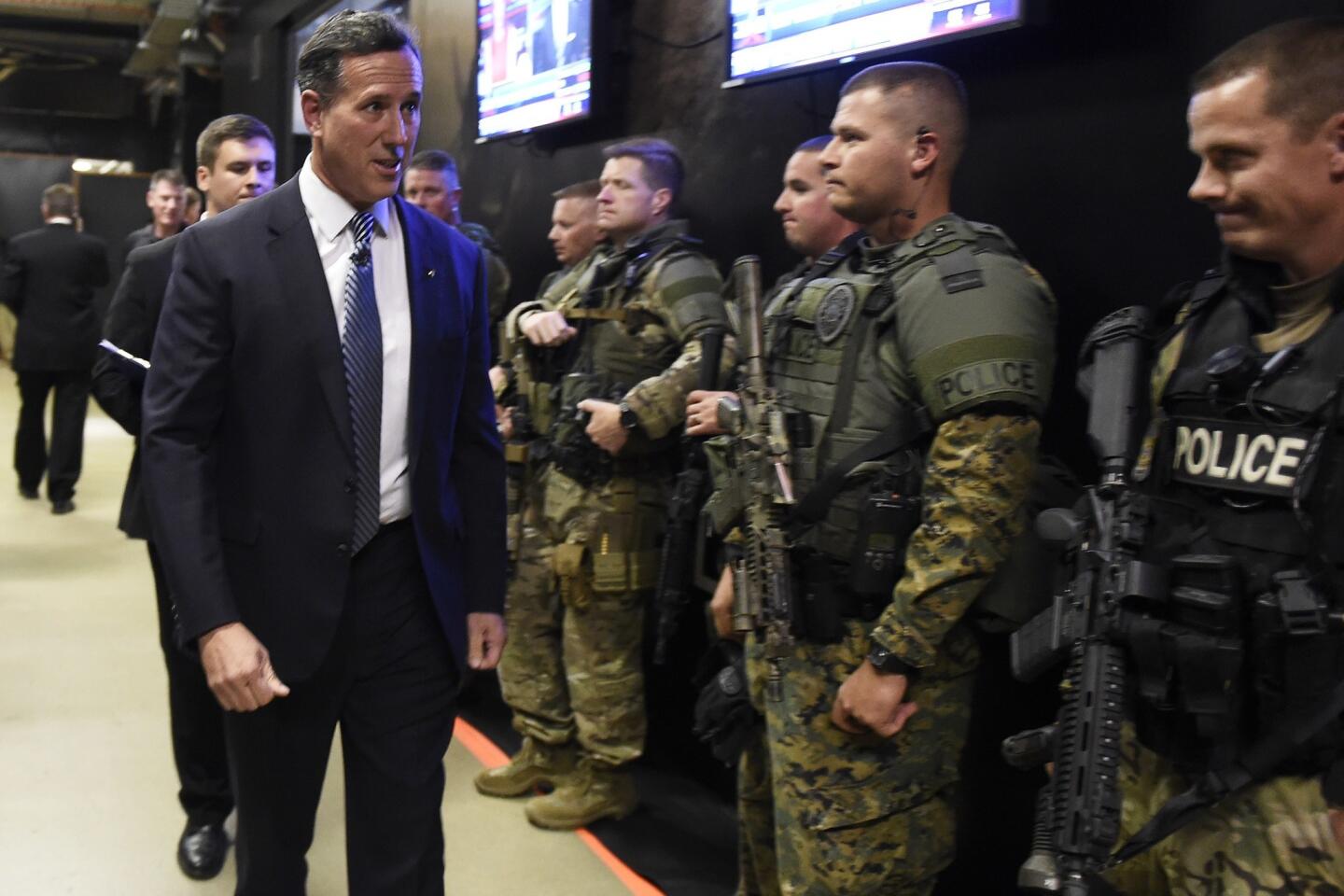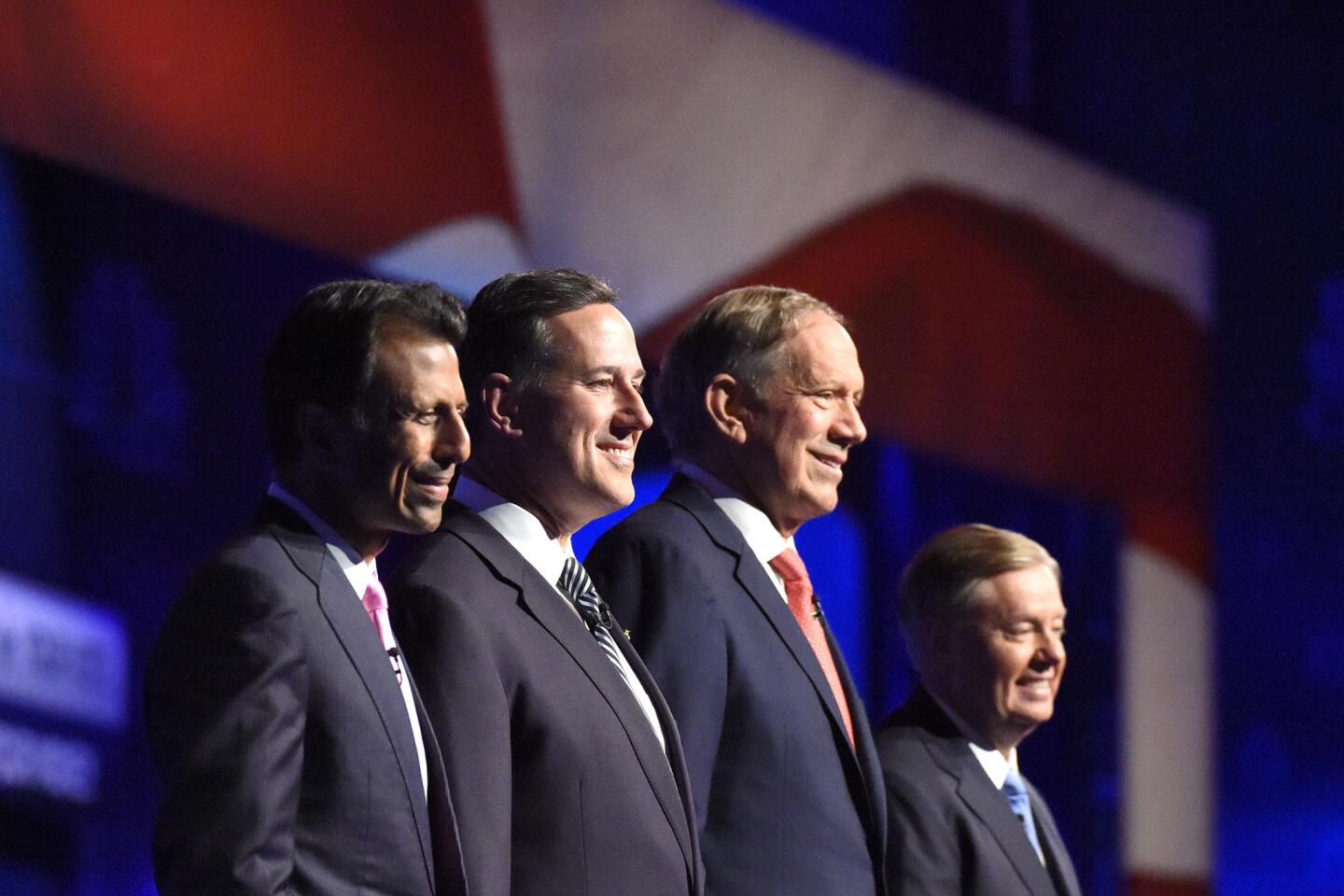Republican debate: Candidates seeking an edge go after front-runners and one another
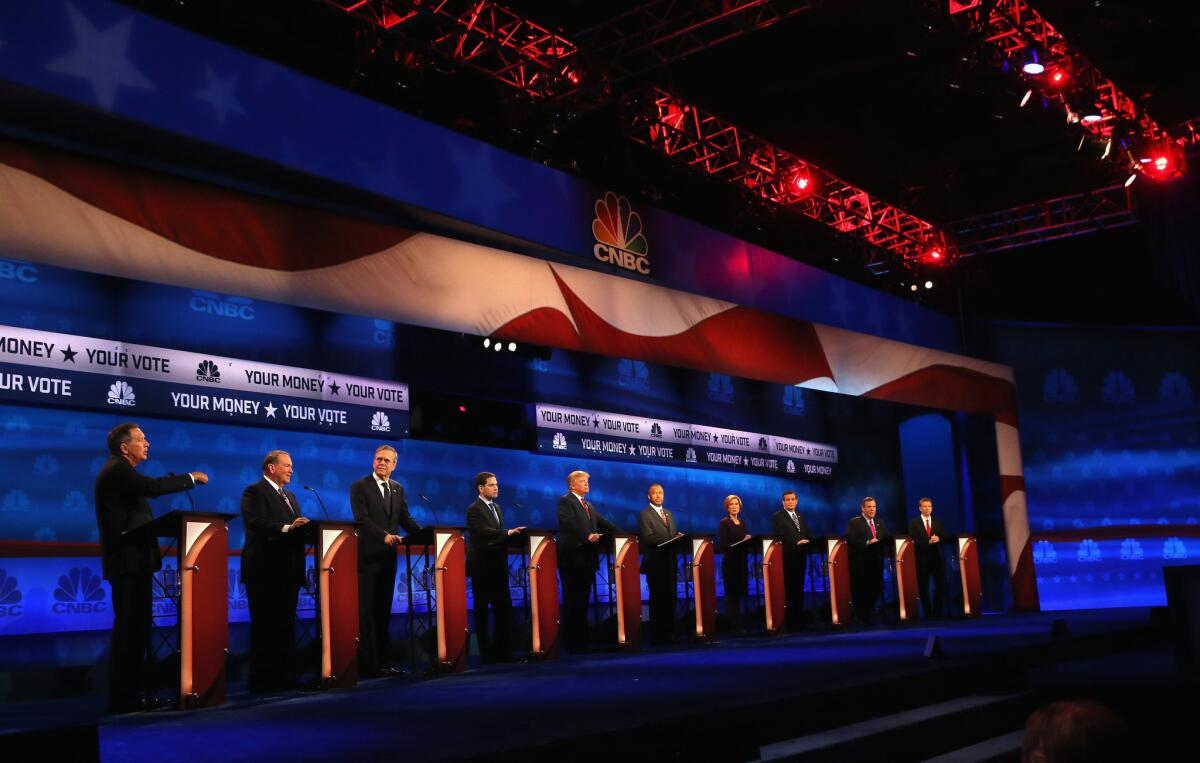
Ten Republicans take part in the main debate Wednesday night in Boulder, Colo. Four others competed in an earlier forum.
Reporting from Boulder, Colo. — Republicans struggling to gain traction in a crowded presidential field sharpened attacks against their rivals in a combative primary debate Wednesday, while the race’s front-runners largely pressed their advantages as political outsiders – opting often to remain above the fray.
In the third meeting of GOP presidential contenders, several candidates tried to reverse recent struggles, leading to some of the most direct confrontations of the race to date only three months before the first nominating contests.
Former Florida Gov. Jeb Bush, whose campaign just announced steps to retrench amid stagnant poll numbers and slowing contributions, targeted Sen. Marco Rubio in an effort to blunt the fellow Floridian’s momentum. But Bush was met with a swift counterpunch that raised new questions about his viability in the race in which he was once considered the front-runner.
“Someone has convinced you that attacking me is going to help you,” Rubio said. “My campaign is going to be about the future of America; it’s not going to be about attacking anyone else on this stage.”
Other candidates trained their sights on the two surprise leaders of the campaign in the center of the stage, Donald Trump and Ben Carson. Ohio Gov. John Kasich warned that voters were “on the verge of picking someone who can’t do this job.”
SIGN UP for the free Essential Politics newsletter >>
And Sen. Ted Cruz led a charge directed at the media, turning what was expected to be a discussion of economic issues into a battle of personalities that occasionally included the CNBC panelists.
“The questions that have been asked so far in this debate illustrate why the American people don’t trust the media,” Cruz said.

Times’ political analyst Cathleen Decker and Times’ political writer Seema Mehta talk about the third Republican debate.
Reince Priebus, chairman of the Republican National Committee, which sanctioned the event, said that CNBC’s moderators “did a disservice to their network, our candidates, and voters” and that they should be “ashamed of how this debate was handled.”
Such attacks aside, the fluid nature of the Republican race has placed additional importance on the televised forums for candidates trying to win over voters, even if some GOP strategists expected a decline in viewership; the debate was pitted against the second game of the World Series.
Polls show that voters are increasingly engaging in – and unsure about – the race. Only 28% of Republicans had made up their mind about which candidate they supported in a CBS News/New York Times survey this week, down from 37% a month earlier.
One of the most electric moments of a two-hour forum came when Bush turned to Rubio, an old protege from Florida who has emerged as seemingly the strongest threat to Bush’s candidacy.
Under questioning from CNBC’s Carl Quintanilla, Rubio brushed aside a home-state newspaper editorial that cited his frequent absence from the Senate and urged him to resign. Rubio said the newspaper did not criticize Democratic senators who have run for president and missed votes and called it an obvious sign of anti-conservative media bias.
The partisan crowd cheered, and then Bush leaped in. “I’m a constituent of the senator,” Bush said, turning to face Rubio, and “expected that he would do constituent service, which means that he show up to work.”
“Marco, when you signed up for this, this was a six-year term. … The Senate, what is it, like a French workweek?” Bush scoffed. “You get like three days where you have to show up? You can campaign. Or just resign and let someone else take the job.”
Rubio defended himself, noting that Bush had praised other senators in previous campaigns who had missed many votes in their pursuit of the presidency. Then, striking a tone more in sorrow than anger, he said, “I will continue to have tremendous admiration and respect for Gov. Bush.”
Bush headed into Wednesday’s debate fresh off something of a campaign shake-up that aides say reflects the reality that the contest has not played out as his team expected. The campaign said at a recent meeting with donors that it would shift resources away from campaign headquarters and into the early nominating states in an effort to boost his standing.
Asked on his way out the door in Boulder about his debate performance, Bush snapped: “It’s not a performance. I’m running for president of the United States.”
The Rubio team downplayed what was widely acknowledged as a strong showing. Campaign manager Terry Sullivan said the debate simply showed how Rubio performs under pressure.
“It’s the next level of testing,” he said. “He took some punches and returned them just as good or even better than he got them.”
In the poll released this week, Carson, a retired neurosurgeon, narrowly overtook Trump as the leading Republican candidate nationally with 26% support to Trump’s 22%, while several other recent polls in Iowa also showed Carson jumping out to a significant lead in the state.
But Carson’s ascendancy did not result in the kind of direct probing by moderators that some rival campaigns expected. Aside from an initial grilling over the feasibility of a flat tax proposal, Carson only faced glancing blows from moderators and Kasich.
It was Trump who delivered an attack on the Ohio governor, raising his connection to investment firm Lehman Bros., whose 2008 bankruptcy was a catalyst for the economic meltdown.
But Trump only occasionally showed flashes of the outsize personality that has made him a political phenomenon, and he defended his business record.
In a rare instance of admitting he was wrong, Trump was forced to backpedal on an immigration question. Debate moderator Rebecca Quick asked him about his statement that Facebook Chief Executive “Mark Zuckerberg’s personal senator,” Rubio, was sponsoring a bill to triple the number of visas for foreign workers with special expertise, such as Silicon Valley engineers. Trump denied making such a statement.
Flummoxed, Quick withdrew the question. But after a commercial break, she told Trump that the language came from his campaign website, and Trump conceded she was correct. “It’s fine if they come in, but they have to come in legally,” he said.
Given the size of the field, others disappeared for long stretches of time. Former Hewlett-Packard Chief Executive Carly Fiorina opened by promising to smile more, a reference to one of the few criticisms she has faced in two previous well-reviewed performances. Former Arkansas Gov. Mike Huckabee got a laugh by noting he wore a Trump-brand tie. Gov. Chris Christie portrayed President Obama as hostile to law enforcement and promised to be a friend of police, as well as a defender of secure borders and American values.
Sen. Rand Paul of Kentucky sounded a familiar libertarian theme. “I want a government so small I can barely see it,” he said.
It wasn’t lost on the candidates that the last CNBC debate four years ago was the one in which then-Texas Gov. Rick Perry earned a spot in presidential campaign infamy by duffing one of his own proposals – forgetting one in a list of three federal agencies he proposed to eliminate as president. “Oops,” Perry’s own admission of failure, was not a line that was repeated Wednesday.
Cruz used the event as a chance to tout a brand-new flat tax proposal, as he criticized the event moderators as avoiding substantive issues.
Four candidates, including former Pennsylvania Sen. Rick Santorum and former New York Gov. George Pataki, were again relegated to the “happy hour” debate that preceded the prime-time event and struggled to show they deserved more consideration. Sen. Lindsey Graham (R-S.C.) again earned a warm reception with self-deprecating humor and quick wit. Louisiana Gov. Bobby Jindal cast himself as the only candidate capable of delivering the kind of change voters frustrated with Washington are seeking.
“I’m the only one that has cut the size of government,” he said. “There’s not two of us, there’s one of us. The rest of it is all just hot air.”
Barabak reported from Boulder and Memoli from Washington. Times staff writer Michael Finnegan in Boulder contributed to this report.
For more campaign coverage, follow @mikememoli and @markzbarabak
ALSO
Violent South Carolina classroom arrest adds to ‘school-to-prison pipeline’ debate
Republican debate: The contests within the contest
Northrop’s deal to build new stealth bomber may create thousands of jobs in Southland
More to Read
Sign up for Essential California
The most important California stories and recommendations in your inbox every morning.
You may occasionally receive promotional content from the Los Angeles Times.
